A Call for Urgent Action Against Rising Anti-LGBTI Hate
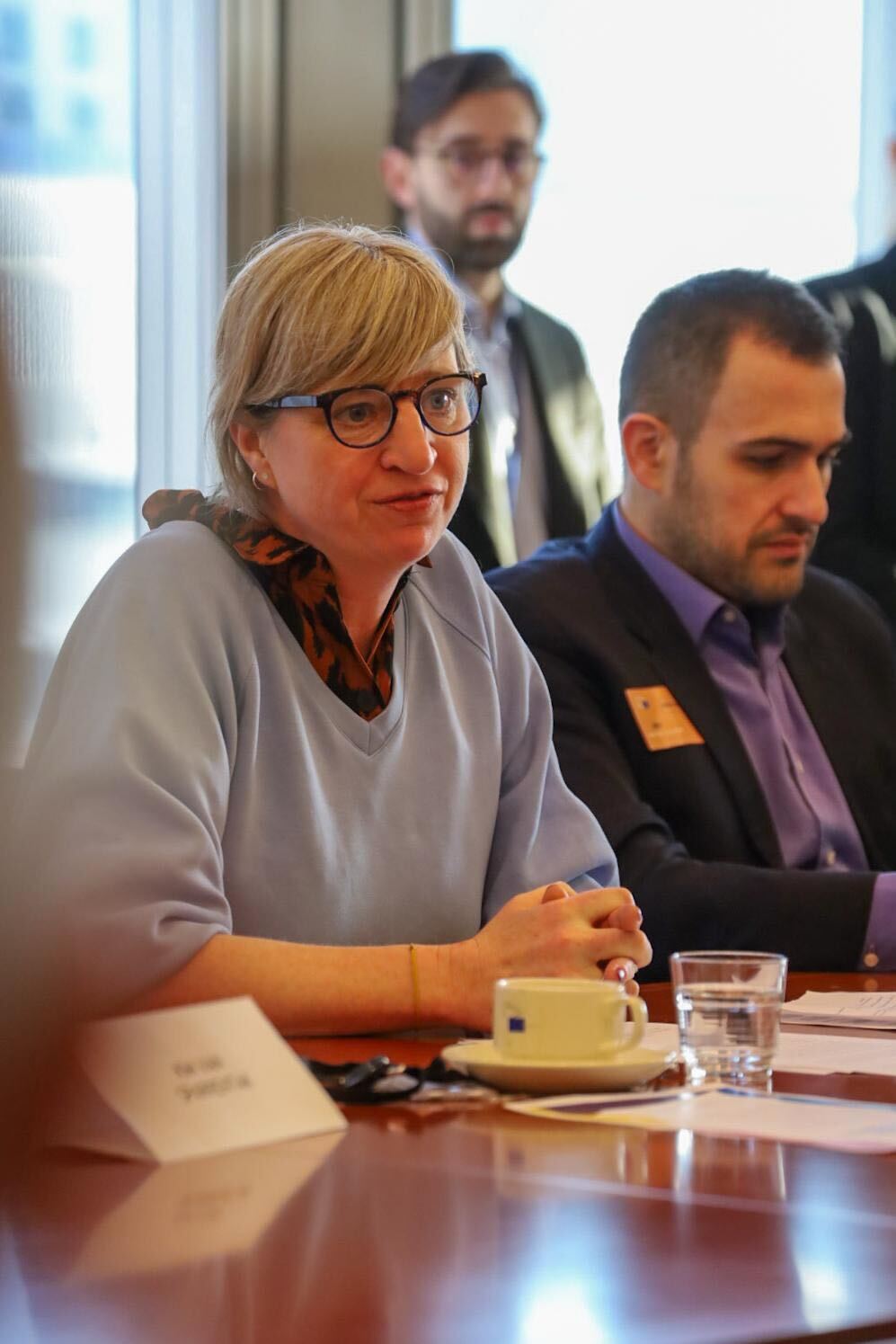
At the launch of our 2025 Annual Review, ILGA-Europe’s Advocacy Director, Katrin Hugendubel delivered a stark warning about the growing wave of anti-LGBTI hate, misinformation, and legislative attacks across the region. As governments weaponise discrimination to undermine democracy, she called for urgent political action to protect fundamental rights and freedoms. In today’s blog we share the full text of her speech.
Our Annual Review of the Human Rights Situation of LGBTI People in Europe and Central Asia, released this week, strives to provide a clear and comprehensive overview of the realities on the ground. The findings are based on individual cases, notable events, and legislative, political, and social developments, as well as data gathered from our own work and insights from LGBTI activists across the 54 countries covered in the report.
In recent years, LGBTI activists and organisations across Europe and Central Asia have repeatedly highlighted the worrying rise and normalisation of hate and violence in our region, including numerous attacks on LGBTI rights that systematically undermine fundamental freedoms.
The 2025 Annual Review once again evidences a clear increase in hate and violence. Furthermore, it illustrates how ongoing LGBTI-phobic hate and misinformation campaigns have laid the groundwork for legislation such as anti-propaganda and foreign agent laws. These laws, which ostensibly target LGBTI rights, actually extend much further—introducing censorship, stigmatisation, and persecution of human rights defenders and opposition voices; anti-democratic interference in elections through disinformation campaigns; and, ultimately, laws that erode fundamental freedoms and the principles of democracy. LGBTI rights are being used as an entry point for broader repressive measures.
LGBTI-phobic hate speech, sexism, and misogyny are increasingly normalised, often fuelled by public figures, including political and religious leaders and state institutions. Politicians in several countries, including Austria, Belgium, Bosnia & Herzegovina, Czechia, Moldova, and Romania, have weaponised discriminatory narratives against LGBTI people during election periods.
To cite just a few examples: in Austria, the far-right FPÖ spoke of “transgender brainwashing” and sought to cut taxpayer funding for what it termed “queer experiments”. In Belgium, Vlaams Belang repeatedly invoked the notion of “gender madness”. The President of Republika Srpska in Bosnia & Herzegovina was fined for hate speech during the election campaign.
The Georgian Elections Observatory (GEO), which focuses on fact-checking pre-election narratives, analysed statements made by senior members of the ruling Georgian Dream party, revealing that ‘LGBT propaganda’ was framed as a Western imposition and linked to a perceived threat to national survival. A similar misinformation campaign in Moldova suggested the country would be overrun by the Western LGBTI agenda ahead of the October elections. In Romania, Călin Georgescu’s electoral campaign during the first presidential election round intensified hate speech against the LGBTI community, even advocating for the re-criminalisation of homosexuality in the Penal Code.
Hate crimes and violent incidents have been reported in the vast majority of countries covered in this report. In Albania, these include stoning attacks against lesbian activists and physical assaults on trans women, with no accountability measures taken. A migrant trans woman was murdered in a hotel room in Copenhagen. Just one day after the Georgian Parliament passed its anti-LGBTI law, celebrity trans woman Kesaria Abramidze was found brutally murdered in her apartment.
In Armenia, while the successful prosecution of the country’s first hate crime against a gay man marks progress, violence against trans people remains unaddressed, and draft anti-discrimination legislation continues to stall. In Germany, during Pride season (June–September 2024), the Centre for Monitoring, Analysis and Strategy documented a surge in extremist mobilisation against Pride events across 27 cities, involving violence and intimidation. The Federal Ministry of the Interior reported 22 protests in this period.
The French Ministry of the Interior released a report showing a 13% increase in anti-LGBTI offences in 2023, with assaults, threats, and harassment rising by 19%, totalling 2,870 cases. The country chapter for France this year lists numerous homo- and transphobic attacks, including two transfemicides. Similarly, Italy recorded a troubling increase in bias-motivated violence in 2024.
Governments are actively fuelling anti-LGBTI sentiment, often followed by legislative proposals restricting freedom of expression, association, and fair elections. In seven countries across the region, so-called ‘LGBT propaganda’ laws, which seek to criminalise LGBTI visibility, ban content, silence activists, and restrict freedom of assembly, were either discussed, proposed, or adopted.
In Kazakhstan, parliamentarians proposed including “LGBT propaganda” in the list of extremist crimes under the Criminal Code, with penalties of up to seven years’ imprisonment. In Romania, a draft law was introduced to censor LGBTI issues in schools, the media, and public spaces, also seeking to ban Pride marches and related public assemblies.
The most far-reaching of such laws came into force in Georgia last December. The “Protection of Family Values and Minors” law prohibits non-heterosexual people from adopting children, prevents
trans and intersex people from changing their gender markers on documents, outlaws public gatherings that promote same-sex relationships, and bans educational institutions from presenting what the government terms “LGBTI propaganda”. It also prohibits legal gender recognition, criminalises medical procedures related to transitioning, equates same-sex relationships with incest, and designates 17 May as a “Day of Family Purity and Respect for Parents”.
Other countries have focused on targeting the education sector, restricting or outright banning LGBTI topics from curricula and awareness-raising initiatives. In Hungary, teachers fear mentioning SOGIESC (Sexual Orientation, Gender Identity and Expression, and Sex Characteristics) topics in classrooms due to the anti-LGBTI law—a fear that has now spread across the region.
Similarly, access to trans-specific healthcare, particularly for minors, has been a major target in 2024. Politicians and governments have exploited trans healthcare as a campaign issue. For instance, Austria’s Chancellor and ÖVP leader proposed banning hormone treatments for under-18s without medical justification and included this in the party’s election manifesto. In Germany, the CDU pledged in its election manifesto to repeal the newly enacted legal gender recognition law. Following the UK Cass Review, barriers to trans healthcare have intensified in France, Italy, Ireland, Poland, the UK, Andorra, Georgia, Hungary, Moldova, Romania, and Russia, placing trans lives at further risk.
Governments are increasingly adopting Russian-style tactics, forcing human rights NGOs to register as ‘foreign agents’ to undermine their legitimacy, restrict funding, and stifle human rights activism. In 2024, Bulgaria, Georgia, Hungary, Kyrgyzstan, and Montenegro proposed or adopted foreign agent laws, posing a direct threat to civil society. In Russia and Turkey, human rights defenders are already labelled as foreign agents or state threats.
As an increasing number of governments crack down on fundamental rights, LGBTI people are being forced to flee persecution, even within Europe and Central Asia. Yet, many European countries are denying asylum claims based on inadequate assessments of country situations or arbitrary credibility judgements. In Germany and Ireland, for example, several LGBTI asylum seekers from Ghana were denied asylum despite facing significant threats to their lives.
Despite these challenges, LGBTI activists remain resilient. They continue to organise Prides, provide support for the most vulnerable, and fill gaps in essential services, such as homelessness support and humanitarian aid in Ukraine. Progress is still being made: Germany has adopted legal gender recognition based on self-determination, workplace protections have been strengthened, and sexual orientation and gender identity have been included in educational curricula in Czechia, Serbia, Slovenia, and Switzerland.
While governments scapegoat LGBTI people and introduce restrictive laws, courts across Europe are upholding LGBTI human rights, issuing key rulings on asylum procedures, hate speech, freedom of expression and association, legal gender recognition, and sexual and reproductive rights. However, political leaders must not rely solely on courts to protect human rights.
This report underscores a global trend: the normalisation of anti-LGBTI rhetoric is a direct assault on the democratic principles that underpin our societies. Political leaders at both the European and national levels must act decisively to counter these growing attacks on democracy.
Click here to download the 2025 Annual Review, see our trends analysis, or search by country, theme, or institution.
LGBTI rights are human rights
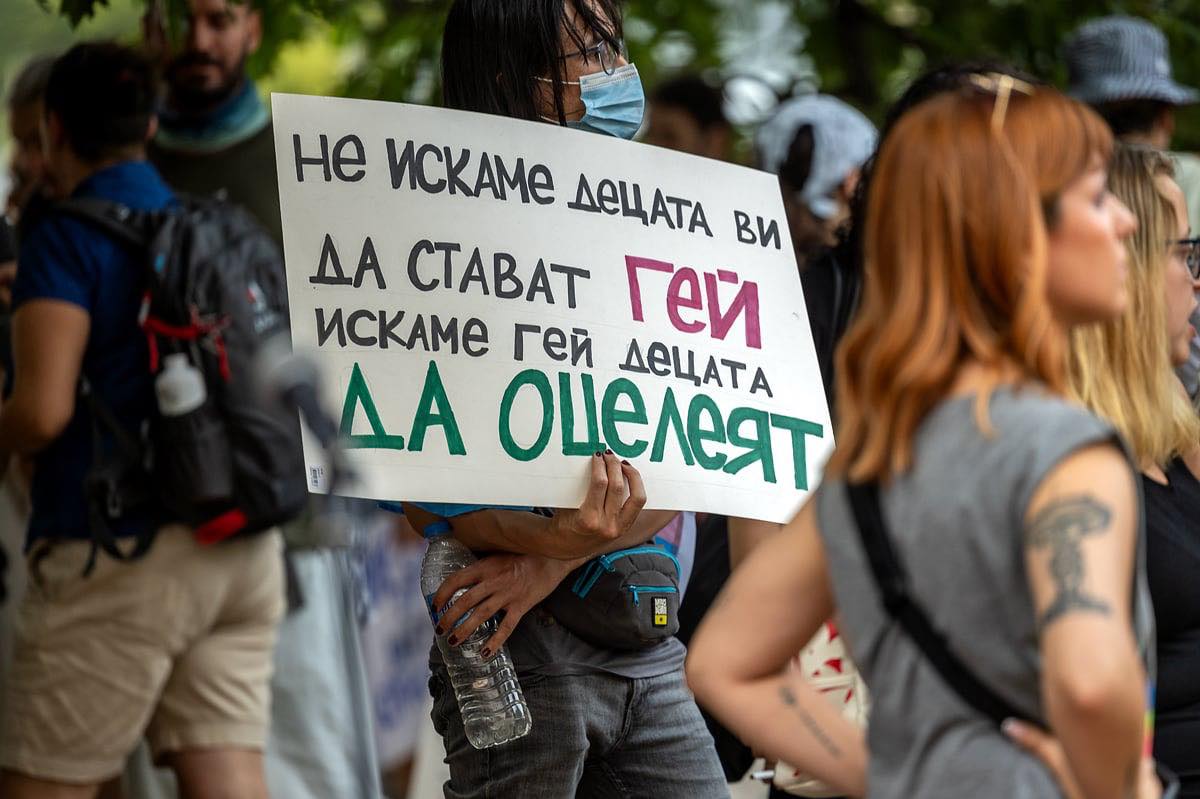
On Human Rights Day we reflect on struggles and milestones for the European and Central Asian LGBTI movement in 2024.
Human Rights Day reminds us of the universality of human rights: freedoms that belong to all people, no matter their identity. This principle is at the heart of the LGBTI movement, as LGBTI rights are human rights. In 2024, these rights were both challenged and celebrated, often reflecting broader societal shifts.
Across Europe and beyond, anti-LGBTI measures highlighted the fragility of hard-won freedoms. Georgia adopted both a “foreign agent” law and an “anti-LGBTI propaganda” law, echoing a troubling global trend of restricting civil society and stifling dissent. On December 2nd, the restrictive law came into force, banning legal gender recognition and equating same-sex relationships with incest, further institutionalising discrimination against LGBTI communities. The law also declared May 17 a holiday opposing the International Day against Homophobia, Transphobia, and Biphobia, amplifying the state’s anti-LGBTI stance. Bulgaria introduced laws targeting the discussion of LGBTI issues in schools, marking another attack on both education and freedom of expression. In Russia, the international LGBTI movement was branded as “extremist” in late 2023, but 2024 saw the first convictions under this extremist label, intensifying the risks for activists and organisations. Kyrgyzstan followed suit by enacting a Russian-style “foreign agents” law in April, subjecting non-profits to extensive state oversight and jeopardising the work of press freedom groups and civil society, including LGBTI organisations.
These developments show how attacks on LGBTI rights often signal deeper human rights violations. In Turkey, trans rights faced severe setbacks with new regulations restricting access to essential hormones, disproportionately affecting trans masculine people and those in poverty. Police repression of LGBTI demonstrations further highlighted the shrinking space for activism and public dissent. The suppression of freedom of speech, association, and democratic principles often accompanies discrimination against LGBTI communities. As such, defending LGBTI rights is part of defending the foundations of democracy and equality for all.
Progress, despite setbacks
Despite these setbacks, 2024 was also a year of hope and progress. Germany’s adoption of a self-determination law marked a major step forward for trans and non-binary people, simplifying legal gender recognition. Greece joined the growing list of European countries recognising equal marriage, while Malta’s introduction of non-binary markers on official documents underscored its commitment to inclusivity.
Beyond Europe, global human rights institutions also made strides for LGBTI people. The UN Human Rights Council adopted a resolution affirming the rights of intersex people, a relevant step in recognising and addressing the unique challenges they face. The European Court of Human Rights ruled that Poland must provide legal recognition for same-sex couples, and the Court of Justice of the European Union declared that Romania must respect gender recognition granted in other countries.
Ensuring no one is left behind
These moments of progress illustrate that advancing LGBTI rights benefits societies as a whole. Laws that affirm equality and dignity strengthen the social fabric, ensuring that no one is left behind. This year’s developments—both the setbacks and the victories—show that progress is possible, but it requires vigilance, solidarity, and collective action.
In February 2025, ILGA-Europe will publish its Annual Review, documenting these and other critical moments from the past year. Stay tuned!
Joint statement: Kazakhstan risks further affiliating with Russia after MP requested to ban a leading LGBTI human rights group as “extremist”.
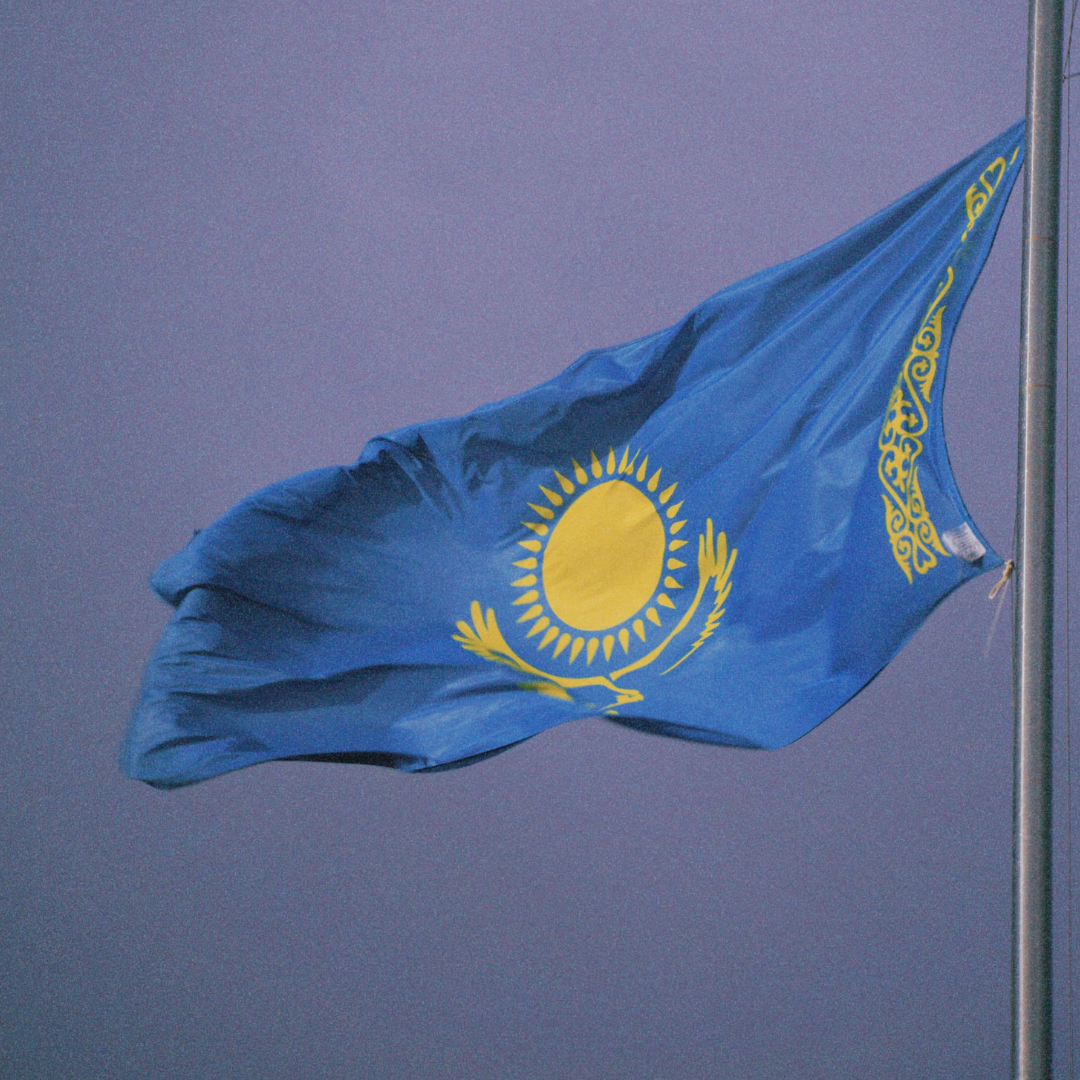
The recent initiative of a Member of Parliament of Kazakhstan to designate as “extremist” and ban an LGBTI civil society organisation, violates Kazakhstan’s human rights obligations and further affiliates it with Russia.
On 9 October 2024, Mr Rinat Zaitov, a member of the Parliament of Kazakhstan, speaking on behalf of the ruling party Amanat, formally requested the government to declare a leading LGBTI civil society organisation as extremist, which would lead to prohibition on its operation and the penalisation of its staff. This happened after a group of pro-Russian radical activists led by Bagila Baltabayeva, the leader of the Kazakhstan Union of Parents, stormed a private event organised by the feminist group Feminita for the LGBTI community in Almaty, Kazakhstan.
Baltabaeva and her group attempted to enter the venue where Feminita was holding the event and disrupt it. Earlier this year, the same group pushed for the petition to ban so-called “LGBT propaganda”, the public support of which was, according to independent sources, allegedly orchestrated by Kazakh officials. At the same time, Kazakhstan has been gradually introducing scrutiny on civil society organisations which are reminiscent of so-called “foreign agents” laws.
Political influence from Russia
State-facilitated violence against civil society activists and scapegoating of LGBTI people is part of the broader set of tools that also includes so-called ‘LGBT propaganda” laws and “foreign agents” laws. Such legislative attacks against human rights defenders protecting LGBTI individuals have a negative impact on the European Union, destabilising it by supporting claims from radical political forces within the EU.
The Government of Kazakhstan must not follow the path, which Russia and its allies have chosen in recent years. We call the Government of Kazakhstan not to declare Feminita or any civil society organisation supporting LGBTI people as extremist, and to duly protect civil society organisations from attacks from third parties, as well as to focus on actual public concerns.
We call on the European Parliament to unequivocally condemn this attempt to ban legitimate human rights activism, as well as any similar initiatives to use anti-extremist legislation against human rights defenders and civil society organisations.
We call on the European Commission to ensure that it is consistent with its own principles and values when cooperating with Kazakhstan’s government and that international commitments on human rights violations are respected across the board. In the event that Feminita or any other civil society organisation supporting LGBTI people is declared ‘extremist’ in Kazakhstan, we believe the European Commission will exercise continuity and that the new sanctions framework against Russia’s destabilising actions abroad will be fairly applied in a similar manner. We specifically call the European External Action Service and the EU Delegation to inform the Government of Kazakhstan about the potential consequences of such actions.
ILGA-Europe
Outright International
LSVD⁺ – Verband Queere Vielfalt
Hirschfeld Eddy Foundation
FRI – The Norwegian Organisation for Sexual and Gender Diversity
The Council for Global Equality
LGBT+ Denmark
Interview with Denitsa Lyubenova: Bulgaria’s LGBTI crisis and what the international community can do to help

Amidst growing oppression, Bulgarian activists rally for LGBTI rights and call for European solidarity
Bulgaria has recently passed a draconian law banning “LGBTI propaganda” in schools, echoing similar legislation in Russia and Hungary. This has sparked widespread fear and uncertainty within the LGBTI community. To shed light on the situation, we spoke with Denitsa Lyubenova from Deystvie, an organisation at the forefront of the fight for LGBTI rights in Bulgaria.
A community in shock and resilience
When the anti-LGBTI law was swiftly passed, the shockwaves were immediate. “It happened so quickly,” Denitsa recounted. “Within just one day, everything changed. The environment in the country turned hostile almost overnight.” The sudden enactment of the law, coupled with the overwhelmingly negative media coverage, has left the community reeling. “People are scared, and there’s a deep sense of hopelessness,” she explained. Many activists, who have spent years pushing for incremental progress, now find themselves grappling with a wave of despair. “Everything we’ve fought for feels like it’s been shattered overnight,” Denitsa shared.
Despite the grim outlook, the resilience of Bulgaria’s LGBTI activists is evident. In response to the law, organisations and activists have mobilised quickly, organising protests and petitions, and rallying international support. Denitsa emphasised the critical role that international bodies like the European Parliament and the European Commission must play in exerting political pressure on the Bulgarian government.
The legal battle ahead
One of the most pressing challenges for the LGBTI community is the legal harassment they face. Denitsa’s organisation, along with others, has formed a legal team comprising 16 professionals, including university professors and community members, to strategise their fight against the law. “We’ve built a strong team to brainstorm ways to fight this law and any future ones,” she explained. This team is not just focused on challenging the current legislation but also on preparing for future legal battles.
The situation is particularly dire for organisations like Single Step, which has been targeted with threats to revoke its license to work with children. Denitsa herself has been subjected to police inquiries and investigations, a clear indication of the increasing pressure on visible LGBTI activists. “We’ve already had to visit the police several times due to investigations into our work,” she shared. Despite the severity of these threats, Denitsa remains defiant, “We’ve been threatened before, but it hasn’t stopped us, and it won’t stop us now.”
Personal toll on activists
The intensity of the situation is taking a personal toll on activists. Denitsa spoke candidly about the strain of being on the frontlines, acknowledging that the past 20 days have been particularly overwhelming. “It’s emergency time,” she said, noting that self-care has become a rare luxury. Despite the pressures, she finds solace in moments of disconnect, like escaping to the mountains, though such moments have been scarce recently. “My partner is a psychologist, which helps,” Denitsa laughed about with a hint of relief. “But the situation demands so much attention that finding time to step away has been nearly impossible.”
Overlooked aspects of the crisis
One aspect that shouldn’t be overlooked in this situation is Bulgaria’s ongoing political instability. The country has seen six elections in four years, creating an environment where far-right forces can push through conservative agendas with alarming ease. “This political instability gives far-right groups a golden opportunity to push their conservative laws and suppress civil society,” Denitsa warned. She stressed the importance of international collaboration to counteract this political crisis “We need to fight this together, on an international level, to prevent further damage.”
Call to action: Support Bulgarian LGBTI activists
Denitsa’s message to European LGBTI organisations is clear: the Bulgarian community needs your support. She urges activists across Europe to sign the petition launched by Deystvie and their partners, and to help raise awareness about the situation in Bulgaria. “We’re providing pro bono legal support to teachers and school directors who may be sanctioned under this law,” she explained. That is why financial support is also crucial, as organisations like Deystvie prepare for a prolonged legal and advocacy battle. Contributions can be made directly through their website, where details for donations are provided.
This is a critical moment for the LGBTI community in Bulgaria. While the challenges are immense, the solidarity and support from across Europe can make a significant difference. As Denitsa aptly put it, “We have to be prepared for the long run. We don’t know when this crisis will end, but we’re not giving up.”
The fight against Georgia’s foreign agent law and anti-LGBTI legislation
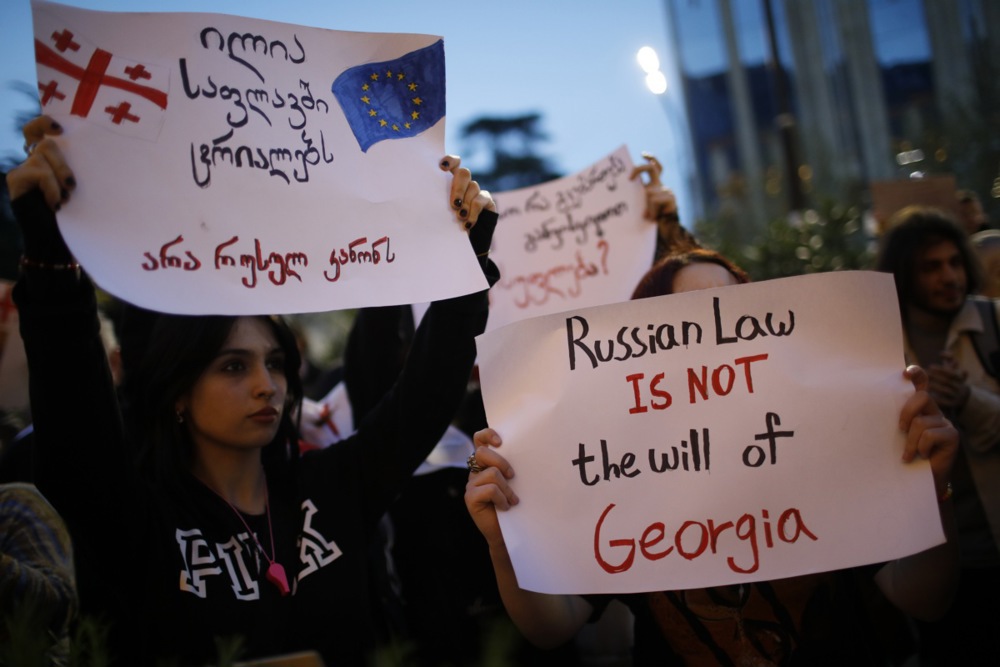
In the face of rising authoritarianism, Georgia’s civil society and LGBTI community are battling draconian laws inspired by Russia, threatening their democratic rights and freedoms ahead of a pivotal national election
On 14 May 2024, the Georgian parliament passed a Foreign Agent law that would see civil society and independent media that receive more than 20% of their funding from abroad forced to register as organisations “bearing the interests of a foreign power” and to open all their internal documents for inspection by the authorities. The bill is part of a wider crackdown on democracy by the ruling Georgian Dream party, which has been inspired by the almost identical foreign agent law enacted in the Russian Federation in 2012.
Opposition to this bill has been significant among Georgian society, which supports democracy, EU accession and a thriving civic space, and is opposed to Russian-style anti-democratic laws. There were huge protests all over Georgia, in which tens of thousands demonstrated in the streets against the adoption of this law. Georgian civil society organisations, including LGBTI organisations, are fearful that more legislation will be adopted which will target civil society and democratic checks and balances.
Targeting the LGBTI community
One such legislation package, announced on 4 June 2024, specifically targets the LGBTI community. If adopted, it would:
- Ban any kind of medical intervention to change sex, such as hormone therapy
- Ban any LGBTQI content in education, in media, in the arts
- Ban legal gender recognition
- Ban adoption for same-sex couples
- Limit freedom of assembly for events that cause “popularisation of same sex marriages or incest”
- Make biological sex markers mandatory
These proposed legislative changes also borrow from Russia’s playbook by singling out the LGBTI community as a target and scapegoat. This legislation is being fast tracked for adoption before the national elections taking place on 26 October, with a first reading and favourable vote having taken place in June and the final two readings scheduled for September.
The combination of both the foreign agent law and the anti-LGBTI legislation would render the functioning of LGBTI civil society organisations and activists in Georgia almost entirely impossible. Already in May, the Council of Europe’s Commissioner for Human Rights commented on how the foreign agent law would specifically target LGBTI civil society. On 21 May, the Venice Commission published an Urgent Opinion on the foreign agent law, concluding that the law’s restrictions on the rights to freedom of expression, freedom of association and privacy are incompatible with international and European standards regarding democracy and non-discrimination.
Mobilising international support
ILGA-Europe conducted advocacy ahead of the June session of the Parliamentary Assembly of the Council of Europe (PACE), to draw attention to the anti-LGBTI law also during the urgent debate on Georgia. We requested parliamentarians to raise the issue of LGBTI people being impacted by both the foreign agent law and the anti-LGBTI law, which a number did. In particular, parliamentarian Beatrice Fresko-Rolfo spoke entirely on this, highlighting how the anti-LGBTI legislation restricts the fundamental rights of LGBTI people including freedom of expression and freedom of assembly, and reflecting on what will happen to the LGBTI community of Georgia if these legislative changes are adopted.
Following the debate, PACE resolution “Challenges to democracy in Georgia” was adopted by the Assembly, addressing the foreign agent law, the violent attacks and intimidation campaigns, the electoral law changes, and the anti-LGBTI law. The Assembly also will address the foreign agent law in a separate upcoming resolution.
Sharp rise in violence
This has all been taking place while the Georgian government and its allies allow for violent attacks and intimidation campaigns against demonstrators, civil society activists, journalists, and opposition MPs. The offices of LGBTI organisations Tbilisi Pride and WISG have been vandalised, and the private homes of their staff have also been targeted by vandalism and intimidatory posters. LGBTI human rights defenders and their families are receiving threats of violence, including death threats. 20 other civil society organisations and opposition party offices have also been vandalised. As this violence and intimidation is condoned by the government, incidents of physical violence are also increasing. Activists expect a hate campaign to be led by the government in the lead up to the national elections taking place on 26 October 2024, and therefore for the hatred and violence to rise even more in September.
The electoral context
The foreign agent law will make it difficult for international organisations to observe the elections for any irregularities in October, adding to the fear that the elections will not be free and fair. This comes after the 20 February 2024 adoption of amendments to Georgia’s Electoral Code, which made it possible for the ruling majority, by itself, to select and appoint the chairperson and non-partisan members of the Central Election Commission (CEC), and which altered the legally required majorities for decision making by the CEC. These changes combined make it possible for the government to control all decisions of the CEC.
If the current ruling party wins the elections, they have made it clear that they will concretise the anti-LGBTI legislation into Georgia’s constitution through constitutional amendments. They also plan to hold a referendum on Georgia’s EU accession. We should expect more anti-democratic and anti-human rights legislation and policies and a broader turn towards Russia and away from the EU.
What can be done?
Georgian civil society will be casting their votes on 26 October for a democratic, pro-EU opposition. They rely on a change in government to halt Georgia’s current anti-democratic path and to repeal these laws that seek to stifle civil society and democratic opposition, and target the fundamental rights of LGBTI people. If the opposition wins in October, it is paramount that they do indeed repeal the foreign agent law and the anti-LGBTI amendments, and set Georgia back on a path to democracy and EU accession. This is especially important given the strength of the anti-gender and anti-rights movement currently pushing various countries in the region towards more autocratic governance, which needs to be strongly opposed by democratic parties. We call on all international actors to support us in ensuring that these laws are repealed if the Georgian opposition wins.
If, however, the current ruling party, Georgian Dream, wins the election, LGBTI civil society and Georgian civil society at large will need intensified support from international donors who should work hand-in-hand with Georgian civil society organisations to see how they can best be supported. In addition, it is widely concluded that the only effective way to hold Georgian MPs accountable for voting against human rights and democracy is through targeted sanctions affecting these individuals, rather than sanctions that would impact the broader economy and people of Georgia.
Top European Court Strikes Out Case Against Azerbaijan for LGBTI Arrest and Torture
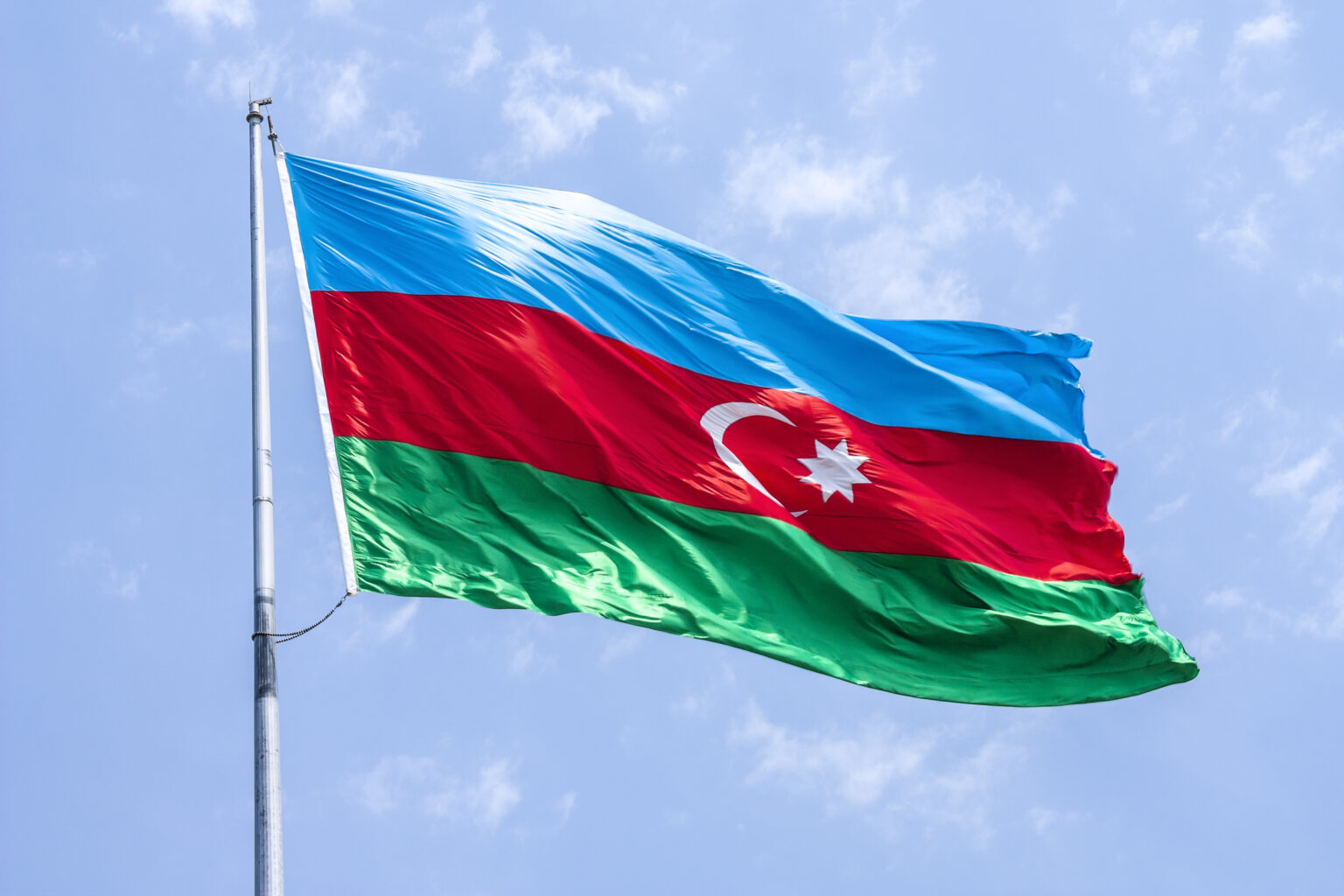
A case against Azerbaijan by a large group OF applicants who were arrested in a wave of anti-LGBTI police raids and forced to undergo medical examinations has been struck out by the European Court of Human Rights
Last week, the European Court of Human Rights decided to strike out A. v Azerbaijan and 23 other applications. The case involved a wave of police raids in Baku in September 2017 that led to the arrest, ill-treatment and forced medical examinations in detention of members of the LGBTI community.
In its decision, the Court considered that it was no longer justified to continue the examination of the applications given the Government’s unilateral declaration made in 2019, according to which it acknowledged that “there was a violation of the applicants’ rights guaranteed in the Convention” and offered to pay compensation to the applicants.
The applicants expressed deep dissatisfaction with this declaration, saying the Government’s acknowledgement lacks specificity regarding the nature and extent of the violations; the Government gave no undertaking for general measures to prevent future violations and there are no necessary provisions under domestic law for holding the perpetrators of those acts of violence accountable. This is particularly problematic as those groups kept being targeted subsequent to the 2017 arrests, in view of their perceived SOGIESC.
According to Leyla Osmanova, a victim of 2017 arrests, “The world saw it, the world knew about it. We were tortured, literally. Even a million dollars cannot cover the cost of psychological trauma, as I continue to live in fear. Although I am in a safe place now, that psychological trauma ruined my life. The court process took a long time, the decision is just a mere decision, the compensation is ridiculous.”
She added: “This event made me long for my native country. I have lost faith not in the country, but in the police and laws there.”
ILGA-Europe together with Civil Rights Defenders and REDRESS had submitted a third-party intervention in the case. Azerbaijan currently sits at the bottom of the ILGA-Europe Rainbow Map, which ranks all 49 European countries on a scale between 0% (gross violations of human rights, discrimination) and 100% (respect of human rights, full equality).
Effective campaigns in support of LGBTI rights: How to avoid instrumentalisation and communicate without playing into polarisation?
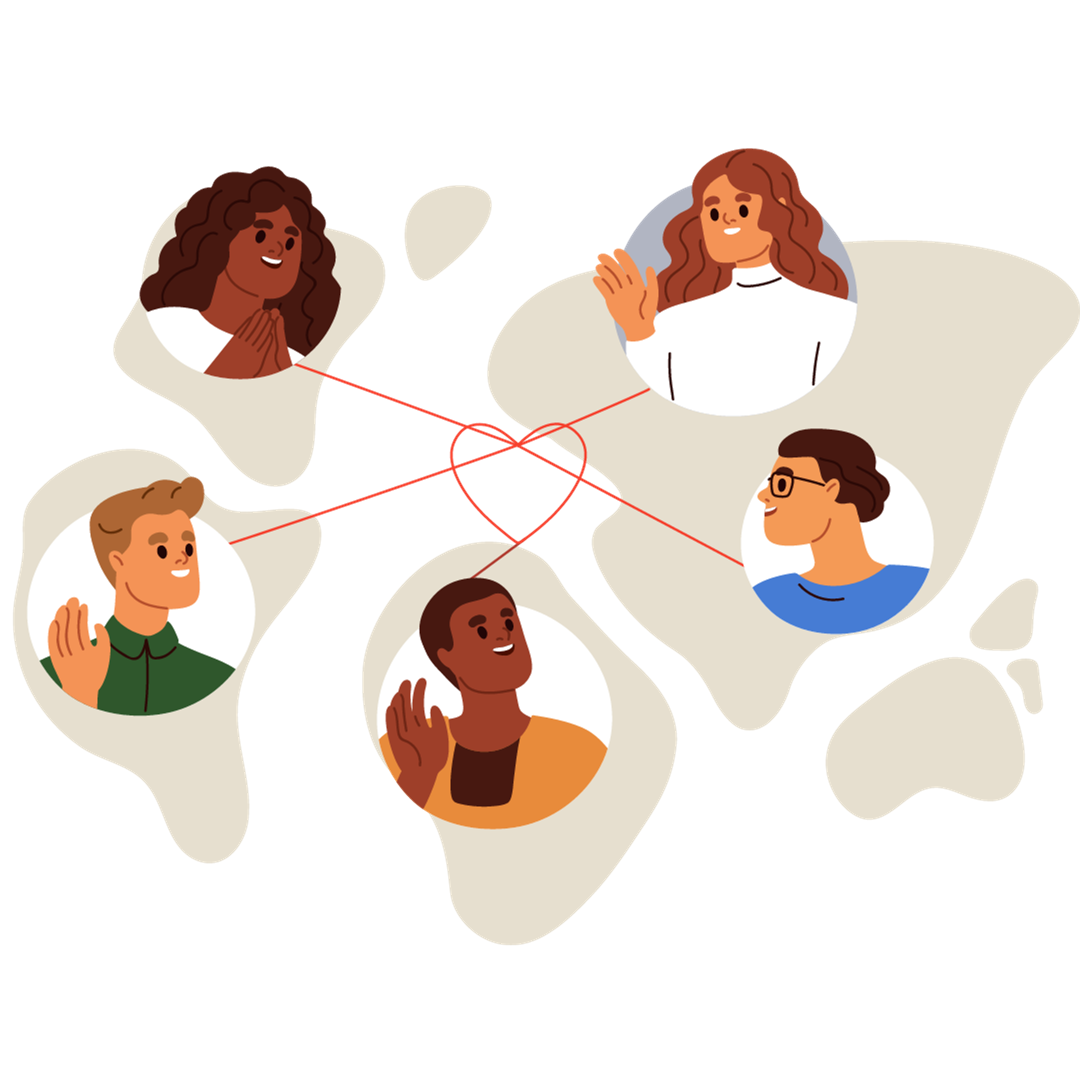
All over Europe and Central Asia, LGBTI people are used by different political payers to gain the power. Our opponents create and feed harmful and dangerous narratives about us and our struggles. Is it possible to communicate with our target audiences without playing their rules and not feeding into their narratives?
Join this online session to learn how to proactively and effectively communicate while not playing into populist narratives that feed polarisation. You will get the first-hand insights about the strategies used in Hungary, where Háttér Society used the so-called “anti-LGBT Referendum” to talk to their allies and in Spain, where La Intersession successfully campaigned for the rights of trans people and even prepared a guide: How we can change trans narratives collectively.
Speakers:
- Alberto Abellán, La intersección, Spain
- Javier Vaquero, La intersección, Spain
- Luca Dudits, Háttér Society, Hungary
The session will take place online on 13 December at 13:00 CET. You can register to join the event here.
Did you miss this session? Find the recording and some additional materials to look at below!
Anti-LGBT Hungarian Referendum is in Bad Faith, says ILGA-Europe
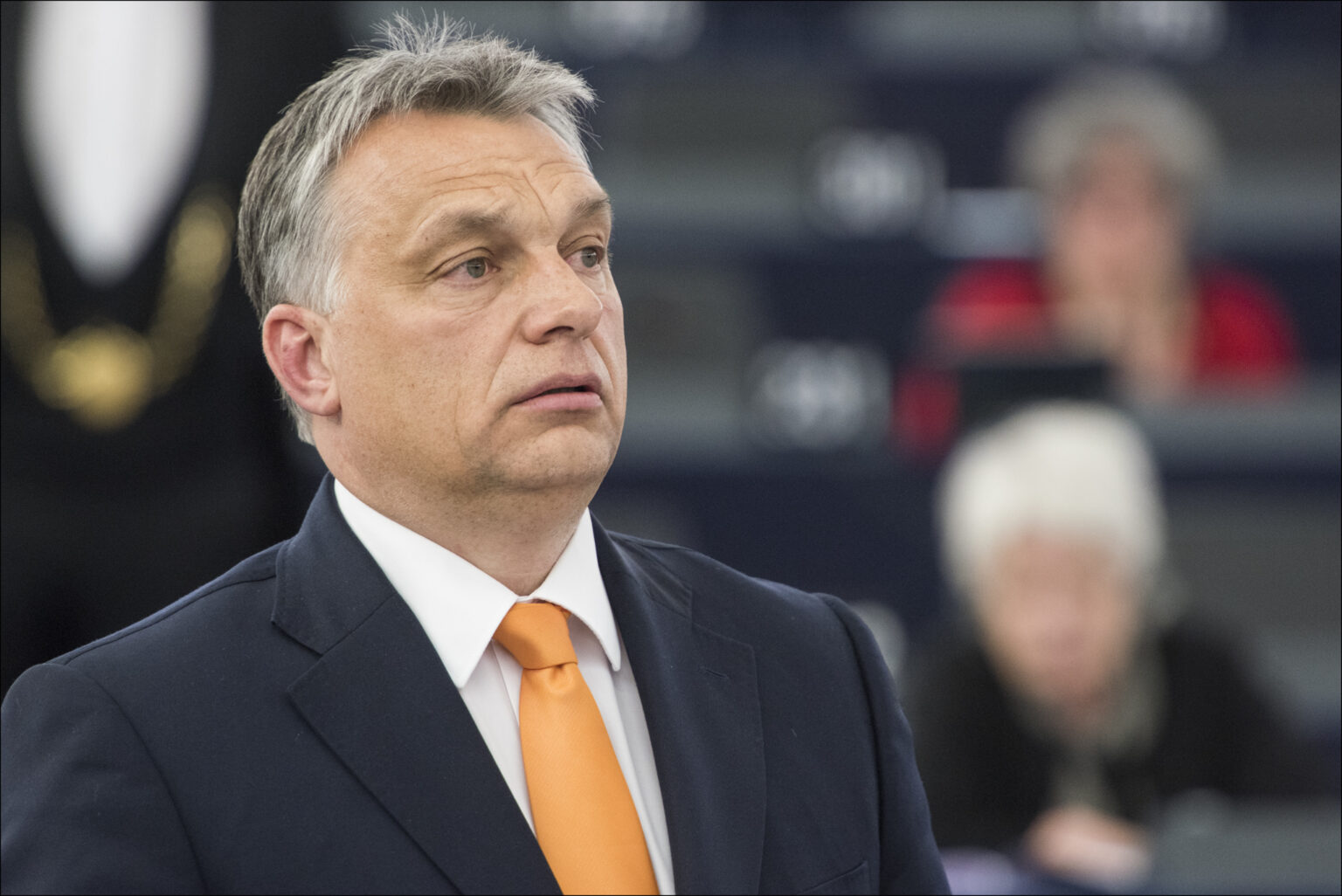
A referendum to be held this coming Sunday during the Hungarian general elections carefully designed to force voters into siding with the current ruling party, Fidesz, against the LGBTI community.
On April 3, the same day as the Hungarian general elections, the ruling Fidesz party will hold a referendum asking the public to validate anti-LGBT legislation that was introduced last year.
The law, banning the “portrayal and the promotion of gender identity different from sex at birth, the change of sex and homosexuality”, was decried by a majority of member states of the European Union, and led the European Commission to take infringement procedures against Hungary.
The referendum, which will be held on the same day as the Hungarian general election will ask four questions:
- Do you support the teaching of sexual orientation to minors in public education institutions without parental consent?
- Do you support the promotion of sex reassignment therapy for underage children?
- Do you support the unrestricted exposure of underage children to sexually explicit media content that may affect their development?
- Do you support the showing of sex-change media content to minors?
However, it is clear from polls and actions of the Hungarian people that state-sponsored anti-LGBTI rhetoric and legislation is not matched by public opinion. Support for LGBTI people in Hungary has never been as high. A record 35,000 people marched at Budapest Pride last July, including many MEPs and other European officials.
According to a representative poll commissioned by Amnesty International Hungary and Háttér Society and conducted by polling agency Medián between 13 and 19 July 2021, 73% of Hungarians reject the government’s false claim that gay and lesbian people abuse or harm children. A clear majority of Hungarian society (74,5%) believe that transgender people should be able to change their gender and name in their official document, while 59% support same-sex marriage.
According to ILGA-Europe’s Advocacy Director, Katrin Hugendubel: “The referendum is in bad faith and specifically timed as part of Prime Minister Viktor Orbán’s continued effort to scapegoat LGBTI people as a method of holding onto power, by distracting from the gross failings and corruption of his government. The questions it poses are carefully designed to force voters into siding with Fidesz against the LGBTI community, thereby giving the false message that the values of the Hungarian people are contrary to the values of the European Union.”
Due to the fact that the referendum coincides with the elections, LGBTI activist organisations in Hungary are not calling for a boycott. Rather they are asking for people to invalidate their referendum vote, since the questions it poses are not in good faith
Behind the smokescreen of anti-LGBTI rhetoric in Europe, there’s a groundswell of allied determination to tackle hatred, report finds
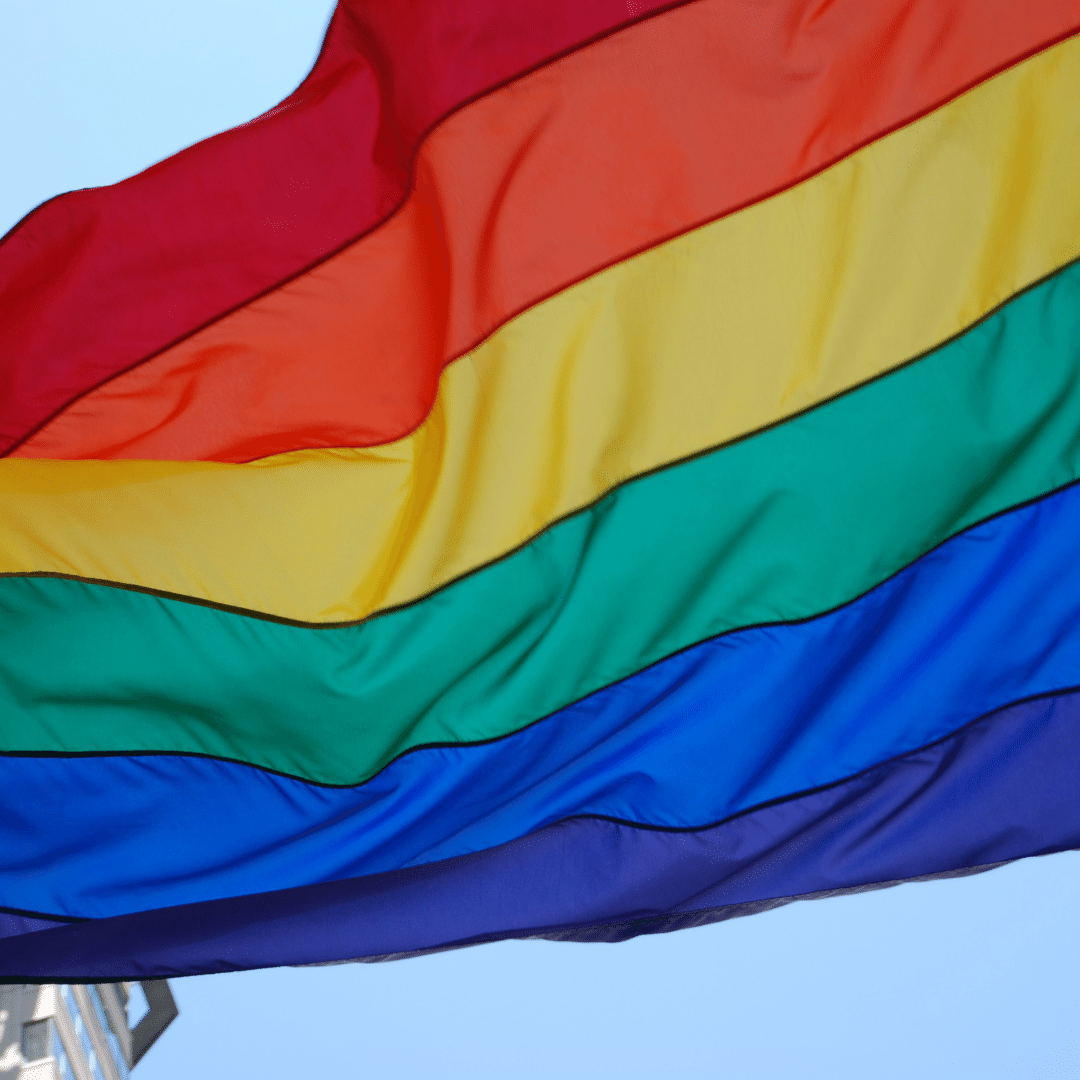
A report from the leading LGBTI organisation in Europe finds that amid a rise in official anti-LGBTI rhetoric fueling a wave of hate crime in every country in Europe, there is a growing institutional resolve to tackle hatred and exclusion.
Published today, February 15, 2022, ILGA-Europe’s Annual Review of the Human Rights Situation of LGBTI people in Europe and Central Asia finds that while there was a staggering rise in 2021 of anti-LGBTI rhetoric from politicians and other leaders, fuelling a wave of violence, with anti-LGBTI hate crime reported in every country, the response to this has been an allied determination in many countries, and at the European level, to tackle hatred and exclusion of LGBTI people.
Politicians in countries across Europe, not just in the usually reported Hungary and Poland, have continued to demonise LGBTI people over the past year, leading to a stark rise in anti-LGBTI attacks, burning of rainbow flags, and targeting of young LGBTI people in particular. A particular low point of the year came on June 15, with Hungary’s introduction of legislation which introduced a ban on the “portrayal and the promotion of gender identity different from sex at birth, the change of sex and homosexuality” for persons under 18.
Reported violence against LGBTI people in this context across Europe was rife. Germany, for instance, had a 39% increase in anti-LGBTI hate crime, while a new app in France, where users can report anti-LGBTI hate crimes, collected reports of 3,896 incidents in its first year. In the second year of the COVID-19 pandemic, domestic violence against LGBTI family members continued to take place widely. There were murders, assaults, corrective rapes, and anti-LGBTI police brutality. In many countries where police brutality took place, the police were not held accountable.
Anti-gender and anti-trans rhetoric have remained widespread, often targeting youth in particular. The narrative pitching trans rights against women’s rights also continued apace this year, and in this context there was stagnation in legal gender recognition (LGR) reform in many countries.
According to Executive Director of ILGA-Europe, Evelyne Paradis: “The spread of anti-LGBTI and trans exclusionary rhetoric outlined in this report has a very real negative impact on people’s lives. In country after country, we see how it negatively impacts people’s mental health and their sense of safety, their access to employment and the overall ability to progress much needed legal protection. At this moment in time, it is essential we remind politicians, media, academics – and sadly even some civil society actors – that real people’s lives are at stake in every country across the region, because of the political scapegoating of LGBTI people.”
In the context of this political scapegoating, national human rights institutions (NHRIs) and courts in many countries have begun to strengthen their work to protect the rights of LGBTI people. The European Court of Human Rights delivered several positive judgments this year, on hate crimes, freedom of assembly, LGR and family rights.
By far the strongest commitment to LGBTI human rights from European Union level came when the European Commission (EC) in July opened landmark infringement procedures against both Hungary and Poland. The European Parliament also adopted its resolution on LGBTIQ rights in the EU, strongly supporting the EC’s objective to propose legislation in several areas of protecting LGBTI rights, and condemning where member states have not been respecting EU law as regards LGBTI rights.
Said Katrin Hugendubel, Advocacy Director at ILGA-Europe, “This report narrates an unparalleled year in Europe, with regional and national institutions and courts taking their obligations to the human rights of LGBTI people with utmost gravity amid the now crystal clear escalation of the instrumentalisation of hatred against LGBTI people for political gain and expanded power. The advance of using hatred of any minority as an instrument of political gain, which we have seen throughout history, must be addressed and halted with allied determination across the region.”
It is also clear from this report that state-sponsored anti-LGBTI rhetoric and legislation is not matched by public opinion. Support for LGBTI people has never been stronger. In Hungary, for instance, a representative poll commissioned by Amnesty International Hungary and Háttér Society and conducted by polling agency Medián between 13 and 19 July 2021, found that 73% of Hungarians reject the government’s false claim that gay and lesbian people abuse or harm children.
A clear majority of Hungarian society (74,5%) believe that transgender people should be able to change their gender and name in their official document, while 59% support same-sex marriage. Hardly any Serbians know trans people, but 60% think they should be protected from discrimination. 68% of Romanians think all families, including rainbow families, should be protected, while 40% of Bulgarians would support a party that is pro-LGBTI.
According to Soudeh Rad, co-chair of the ILGA-Europe board: “While these numbers and outcomes of similar polls are promising as heartwarming illustrations of the strength and impact of the work carried out by civil society and the LGBTI movement at global, regional, and local levels, we must not forget the struggles activists across Europe and Central Asia face in realising a world where everyone can enjoy their human right to fully be themselves.”
Check out our Annual Review 2022.
Navigate the Annual Review chapters by country, institution or theme at our Rainbow Europe module!
For further comment, please contact ILGA-Europe’s Communications and Media Officer Ana Muñoz Padrós at ana@ilga-europe.org or +32 493356055.
Rising challenges for LGBTI organisations in Europe and Central Asia, new report finds
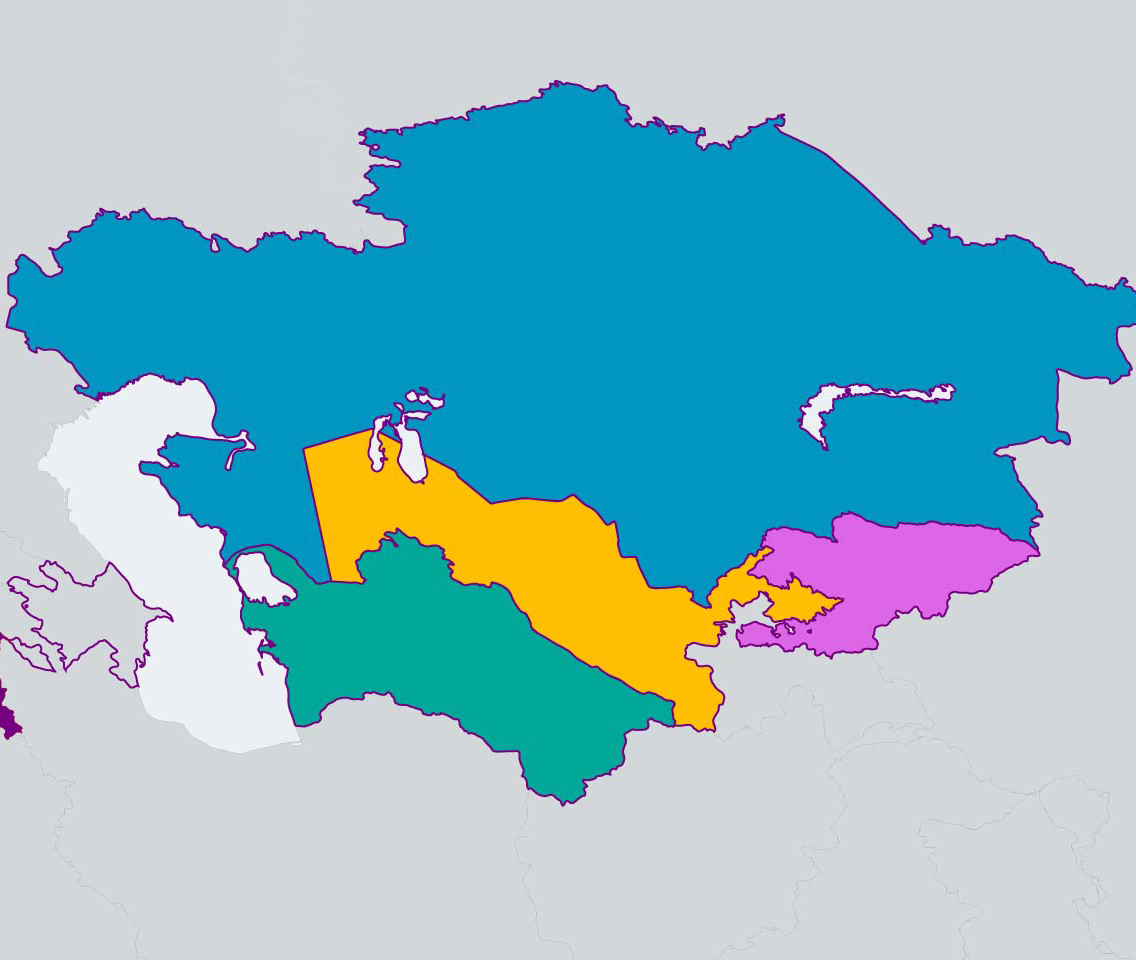
A survey of LGBTI organisations across Europe and Central Asia finds they face significant challenges in the face of growing anti-LGBTI forces, and the ongoing COVID-19 crisis.
A report launched today by Europe’s leading LGBTI organisation, ILGA-Europe indicates that LGBTI activists are struggling to resource their work amid a number of challenging factors.
The report, entitled, “Funding To Meet Changing Realities – LGBTI Organisations on the State of Funding in Europe and Central Asia, Survey 2021”, based on survey responses from 300 LGBTI organisations across Europe and Central Asia finds that:
- About one third of LGBTI organisations operate on yearly budgets under 20,000 Euro, whilst engaging in a wide variety of activities to simultaneously serve their communities and advance laws and policies to protect LGBTI people’s human rights
- Amidst the COVID-19 pandemic, organisations across the region stepped up to fill the gaps by providing services to LGBTI people that should have been provided by public authorities
- Every second LGBTI organisation in the region experiences stress and burnout due to not being able to meet the needs of LGBTI people coming in for help
Overall, 84.9% of organisations say that they have been faced with burnout issues. The most common cause of stress and burnout across was not being able to meet the needs of LGBTI people coming in for help (49.7%), responding to COVID-19 (46.1%) and having to respond to external threats from right wing, anti-LGBTI or “anti-gender” groups or individuals (43.6%).
The report further assesses challenges that LGBTI organisations face and maps the diversity of work done and communities served by organisations. About three-quarters of LGBTI organisations identified a lack of funding for the activities that are most important to their organisation as a barrier to implementing projects. They often do the most important work for them without funding, or without dedicated funding.
The report also indicates that the despite mounting workloads, burnout and growing threats and attacks, LGBTI organisations continue to widen their work, focusing on a variety of highly vulnerable groups within the LGBTI community, such as migrants, young people, and trans and gender and non-conforming people, and are in dire need of additional resources to ensure that they can strengthen these efforts.
Amongst the good news is that LGBTI organisations across the regions have grown the proportion of their own resources to support their work, for instance by getting more donations from companies and private donors.
Launching the report, ILGA-Europe Programmes, Director Björn van Roozendaal said: “Behind the rich data contained in this report there is a powerful story of LGBTI activists who amidst growing opposition, rising oppression and an unfolding pandemic have continued to stand up for their communities, reached out to those who are most affected and continued to undertake new work and build partnerships to meet today’s challenges. But resources continue to be scarce. The stark findings of this report should be a call to action to anyone who can and wants to support or step-up their commitment to support LGBTI organisations.”
Further information:
The report Funding To Meet Changing Realities – LGBTI Organisations on the State of Funding in Europe and Central Asia, Survey 2021 is written by Erin Howe and Somjen Frazer from Strength in Numbers Consulting Group for ILGA-Europe. It is based on a survey to which nearly 300 LGBTI organisations responded, as well as interviews with 21 activists.
For further comment, contact: Ana Muñoz Padrós, ILGA-Europe: ana@ilga-europe.org, +32 493 35 60 55
EU Holds Firm in Face of Hungary’s Blatant Lies Surrounding Anti-LGBTI Law
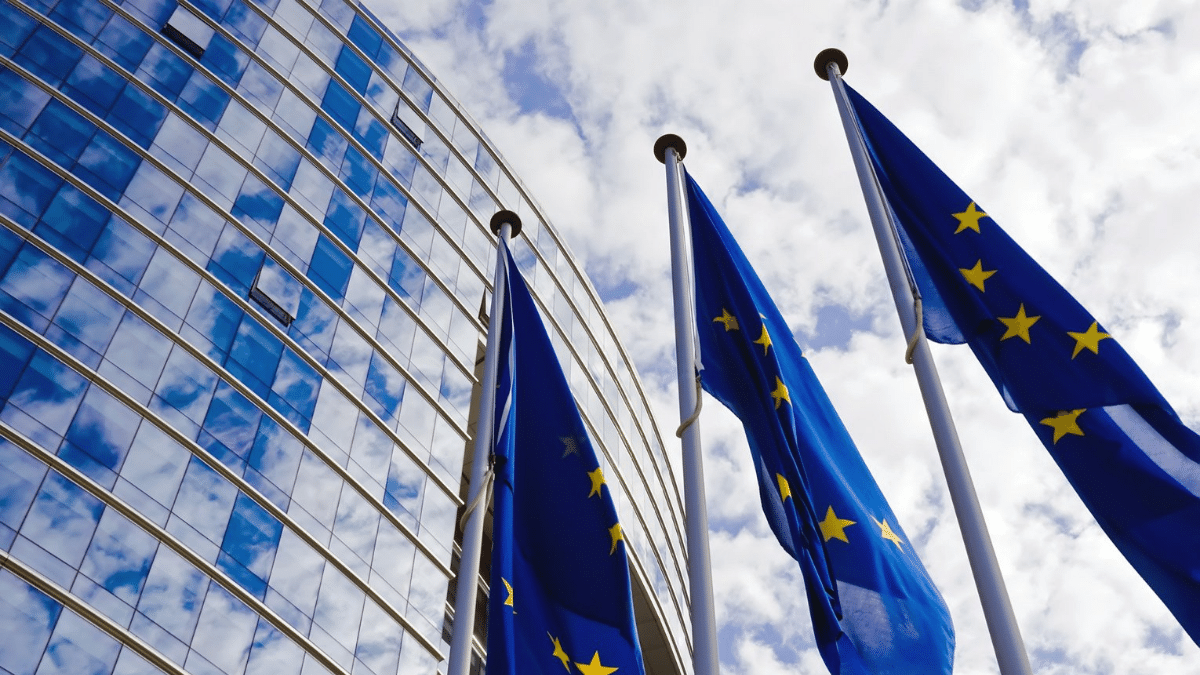
As the European Commission takes the second step in its infringement procedure against Hungary, Europe’s leading LGBTI organisation welcomes its clarified commitment to the equal human rights of the people of Hungary and all other EU member states.
Today, 2 December 2021, the European Commission (EC) began the second phase of its infringement procedure against EU member state, Hungary, due to discriminatory amendments adopted on 23 June in the country, which ban the “portrayal and the promotion of gender identity different from sex at birth, the change of sex and homosexuality”.
On 15 July 2021, the European Commission formally notified Hungary of the beginning of infringement proceedings regarding the amendments. The Hungarian Prime Minister, Viktor Orbán responded by accusing the Commission of “legalised hooliganism” and announcing plans to call a referendum on the amendments, falsely insisting that the infringement procedures specifically seek to interfere in the Hungarian education system. Since then a number of Hungarian government officials have similarly sought to mislead the Hungarian and European public in regard to the content of the infringement procedures.
Today the Commission said that it finds Hungary’s official response to its notification insufficient, and it has therefore started the second phase of the infringement process by sending Hungary a letter known as a “reasoned opinion”, outlining the parts of the new Hungarian law that are breaching EU law, and demanding that these are changed. The EC also identified that even more EU laws are being breached by the amendment, and contrary to claims from the Hungarian government, it did not mention any educational directives in its reasoned opinion.
Instead it clarified that it is specifically concerned with breaches to fundamental EU law when it comes to the freedom to provide services and the free movement of goods. Hungary, the Commission says, has not shown how restrictions in its legislative amendments are duly justified, non-discriminatory, and proportionate.
In addition, the EU clarified breaches of the Audiovisual Media Services Directive and the e-commerce Directive, citing restrictions in the amendments regarding audiovisual media content, including discrimination based on sexual orientation.
The Commission also deems that the Hungarian amendments violate human dignity, freedom of expression and information, the right to respect of private life as well as the right to non-discrimination as enshrined in Articles 1, 7, 11 and 21 of the EU Charter of Fundamental Rights, and due to all of this, the amendments violate Article 2 of the Treaties of the European Union.
According to Katrin Hugendubel, Advocacy Director with Europe’s leading LGBTI organisation, ILGA-Europe: “The Hungarian government keeps twisting the facts and stating that it is protecting children and acting on the will of its people with these amendments. Both statements are patently false. The amendments are an attack on children’s rights as well as the rights of LGBTI people. Contrary to the amendments reflecting the will of the people, support for LGBTI equality is growing in Hungary.
“With these amendments and his referendum, Orbán is running a campaign in advance of elections next year, hoping to distract from the massive problems his government is responsible for by scapegoating the LGBTI community. The EC is right to hold the Hungarian government accountable to the Treaties, and should not hesitate to see this through, including by bringing Hungary in front of the Court of Justice of the European Union (CJEU).”
Hungary now has two months to remedy the breaches identified by the Commission. If they do not amend the law to remove the breaching anti-LGBTI provisions, then the Commission will refer the case to the CJEU.
For further comment, contact: Ana Muñoz Padrós, ILGA-Europe: ana@ilga-europe.org, +32 493 35 60 55
The Frontline: Being an LGBTI Activist Today
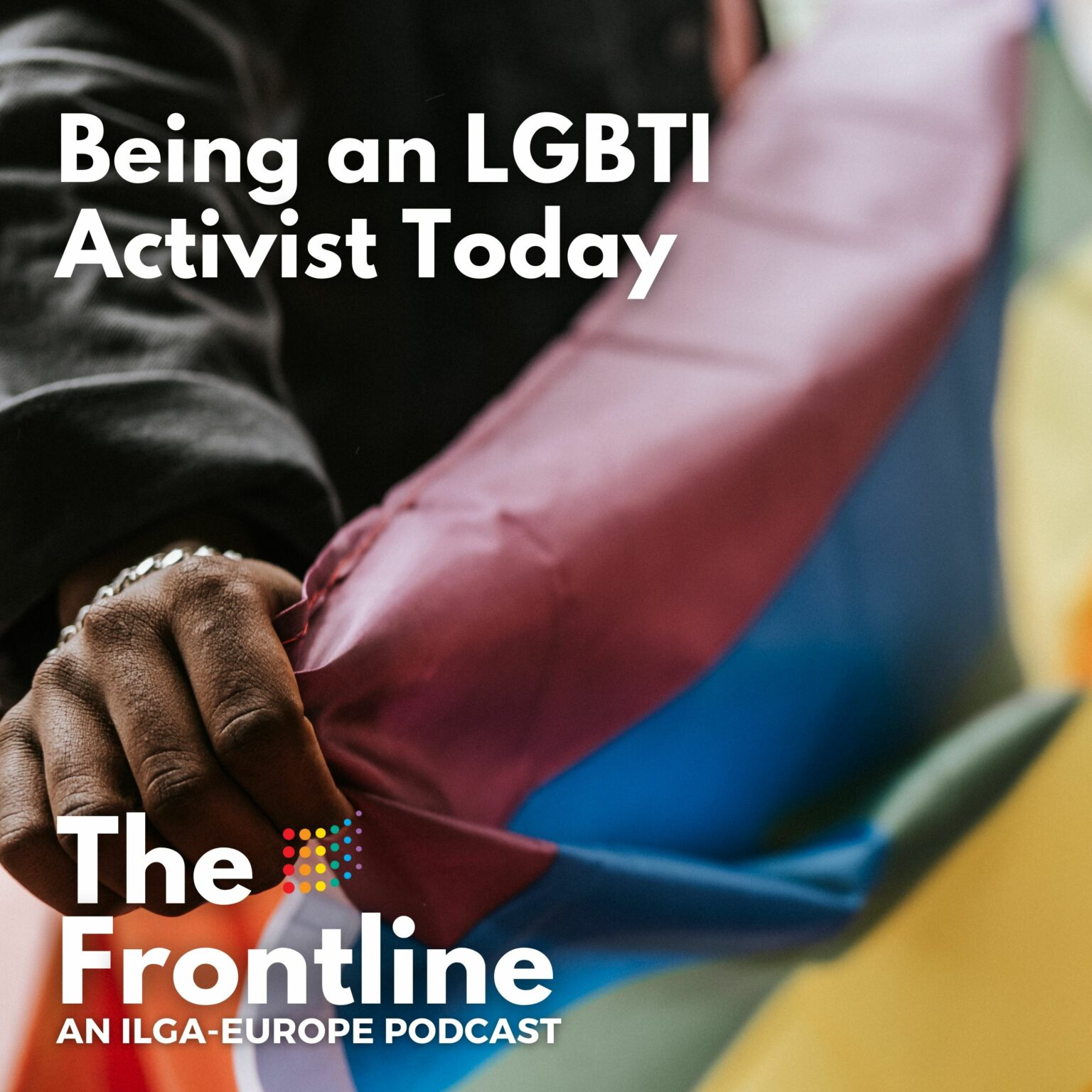
Joining us to talk about the reality of queer activism in the current context, the good sides and bad, are ILGA-Europe’s Programmes Director, Bjorn van Roozendaal; Ola Kaczorek, founding member of Love Does Not Exclude, the first organisation to demand marriage equality in Poland; Irena Cvetkovic, the Executive Director of Coalition Margins in North Macedonia, which works to promote and protect the human rights of marginalised communities, and Ruslana Hnatchenko from the Ukrainian lesbian feminist NGO, Women Association Sphere.
Listen below or click here to listen and subscribe to The Frontline on your favourite podcast platform.
Poland Anti-LGBTI Hate Timeline
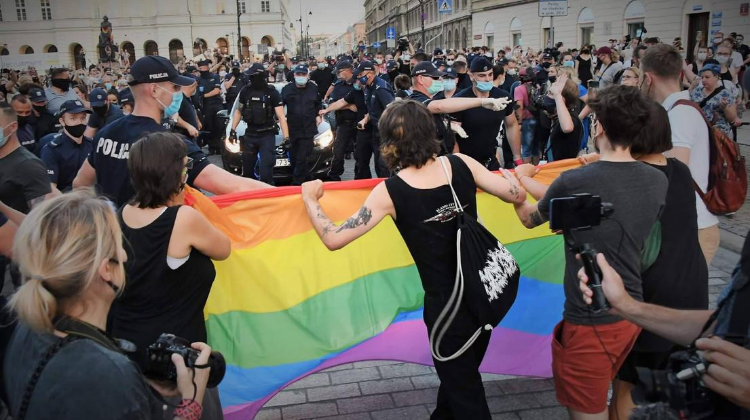
Over the past number of years, LGBTI people have come under increasing attack from ruling politicians, religious leaders and other public figures in Poland. This has come in the form of dangerous and false framing of LGBTI people as a threat to children, and as a threat to Christianity.
We have created and will be updating this abbreviated timeline of what’s been happening over the past two years with the rise of official homophobia and transphobia.
Three crucial ways to resist anti-LGBTI forces
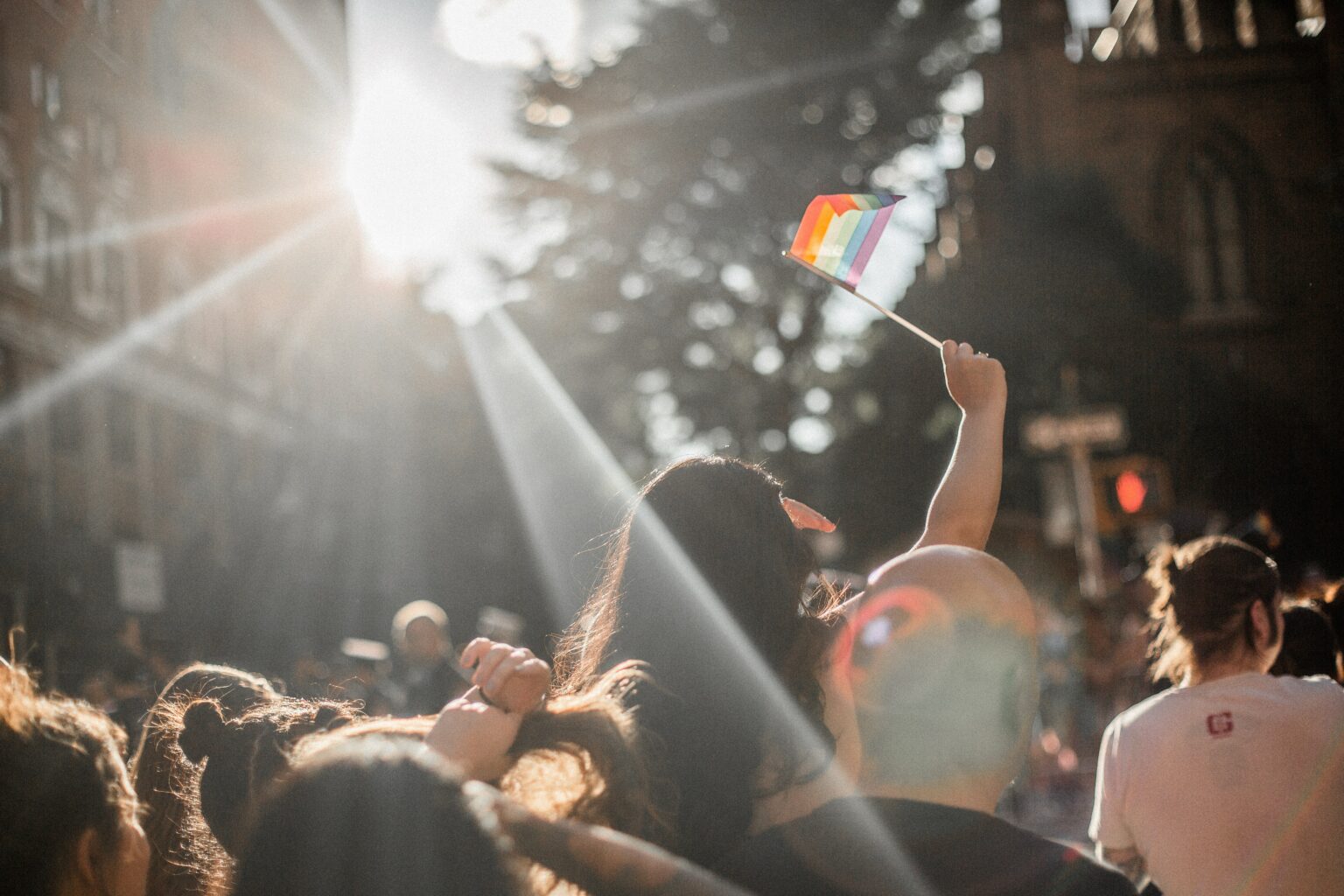
As ILGA-Europe launches a re-granting programme to strengthen the capacities of European and Central Asian LGBTI organisations in the current landscape of rising anti-LGBTI forces, we share three core tactics to develop in the face of groups who strategically attack our rights and lives.
Anti-LGBTI forces are diverse and widespread, and yet largely united in their efforts to limit the rights of, encourage discrimination against, and negatively affect the day-to-day lives of LGBTI people. Their tactics are instantly recognisable: spreading harmful misinformation about LGBTI people and their lives; initiating and feeding into smear campaigns against LGBTI activists; attacking funding of LGBTI movement; campaigning against progressive laws; and lobbying for discriminatory policy and legislation. And that’s just some of their strategies.
As a result, activists across Europe and Central Asia are dealing with waves of anti-LGBTI attacks on an everyday basis. They face it when they open their e-mails, receive requests from media, plan their work, talk to their communities, apply for funding, take up public engagements, or communicate on social media.
Beyond the usual suspects, namely Poland and Hungary, which currently receive all the media attention, anti-trans rhetoric is gaining ground in the UK, Denmark and several other European countries. The alarming increase and breath of these attacks counters the perception that ‘West is the best’, while the East is always catching up.
The relentlessness of anti-LGBTI attacks can be discouraging, disempowering and exhausting. What can we do to not only survive, but resist and outstay anti-LGBTI forces?
Here are three areas of work that are crucial and yet often hidden, undervalued and done by activists on voluntary basis with very little resources at their disposal.
1. Communication
Frequently, anti-LGBTI actors hijack our story, our history and our legacy. They present a distorted image of who LGBTI people are, how we live and what we want. To pro-actively respond to anti-LGBTI forces means telling our story on our terms and in our language(s), and getting our voices heard. As ILGA-Europe’s recent communication needs assessment indicates, it’s crucial that we invest time and efforts not only developing communication skills, but also strategic communication planning. We have to develop tactics to tackle smear campaigns and hate speech. Then we will know how to act and what to say when we are hit with another lie or attack.
To better understand the premises and logic of anti-LGBTI messages, we need to do research. This will also inform our own communications as we will be able to determine what works and what doesn’t. We have to come up with creative and compelling ways to re-claim human rights values so we can promote positive, convincing and appealing messages. How can we offer an inclusive and daring image of the future based on a vision of society rooted in human rights? Maybe some of it will sound like a sci-fi fiction but we ought to become audacious writers, re-imagine the world and find allies to make this reimagining a reality.
2. Alliance building
One of the most devastating anti-LGBTI tactic is the old divide and conquer chestnut. Destructive forces work to antagonise and pit communities against each other, disrupting previously strong alliances (take, for example, the rift in some contexts between lesbian and transgender movements, or between women’s and transgender groups).
A super-strong weapon to beat to this kind of underhand attack is alliance building with actors outside the LGBTI movement. We need to have better and more aligned strategies to counter and withstand anti-LGBTI and anti-gender backlash, to seize opportunities and to (further) mobilise allies. Think about alliance building as sustaining support networks and friendships — something that COVID times has poignantly underscored as the core human need. We need connections where our values are shared and on which we can rely in difficult times.
Ask yourself: What are our common grounds with other actors from the social justice movement — those working with and for migrants, indigenous people, women, ethnic minorities, and sex workers? Could we find new groups to jointly advocate for anti-discrimination legislation with? Could we create allied narratives around human rights? Could we come up with new ways of mobilising parts of the population and civil rights movement who might never before have spoken out in favour of LGBTI rights?
3. LGBTI movement cohesion
In 2020, not only did COVID-19 impact our communities but also anti-LGBTI forces utilised government responses to the pandemic to pass discriminatory legislation and scapegoat LGBTI communities, blaming them for economic decline and political failures in the face of the virus. In the midst of it, we owe it to ourselves as a movement to love and nourish each other.
Let’s come together more often and share ways we have survived and even thrived in these unprecedented times. Let’s strengthen ties within LGBTI movement across different subgroups, regions and even countries. Let’s work on trust building, if it has weakened. Let’s acknowledge conflicts and work on resolution and prevention. Let’s not shy away from having critical and often difficult conversations around resilience, wellbeing, inclusivity, power and privilege.
Let’s consciously put efforts and time to gather with our colleagues and teammates, to remember why we are doing work we are doing, to acknowledge the damage and pain caused by misinformation and hate, and yet remember the joy of being alive while being true to our beliefs. Finding joy in being who we are, living our lives and doing our work, will help us prevail.
Do you believe it is time for LGBTI people and communities to stay united?
We have launched a re-granting programme to strengthen the capacities of LGBTI organisations in Europe to achieve change in the current landscape of rising anti-LGBTI forces. The closing date for proposals is May 23, 2021 at 23:59 CEST. Find out how to apply here.
Responding to anti-LGBTI forces: ILGA-Europe’s call for project proposals
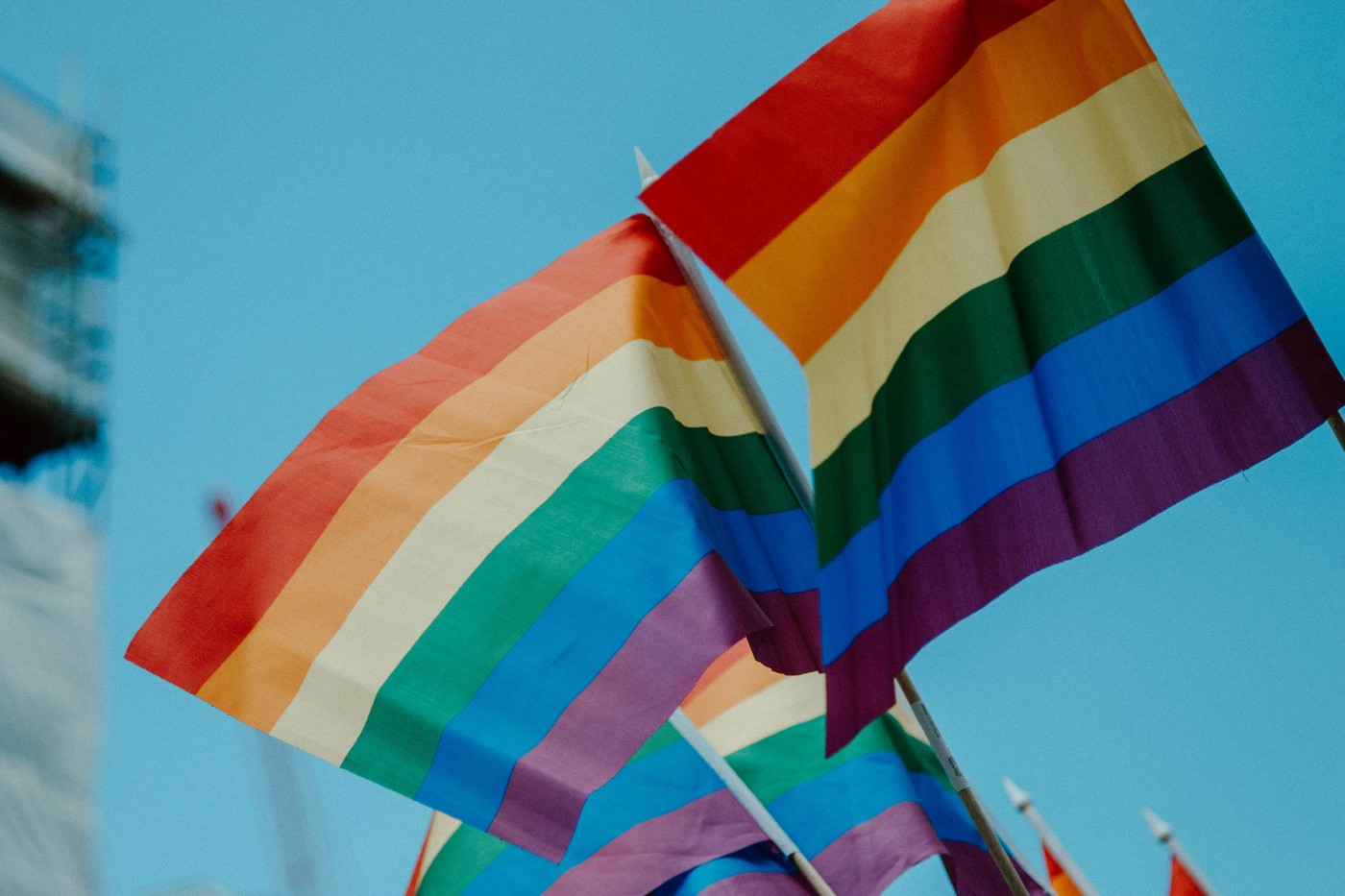
We have launched a re-granting programme to strengthen the capacities of LGBTI organisations in Europe to achieve change in the current landscape of rising anti-LGBTI forces.
At ILGA-Europe, we believe that now is a crucial time to stay united, re-claim agency and pro-actively address growing anti-LGBTI and anti-gender rhetoric and state-led anti-LGBTI attacks. That’s why we have launched a scheme under which we will support efforts that enable work on communication, alliance building, and the movement’s cohesion and resilience.
The context
For years now, we have witnessed mounting anti-gender and anti-LGBTI rhetoric, and targeted attacks against LGBTI rights and the LGBTI movement. Populists, religious actors, the far-right, ultra-conservative organisations, but also increasingly government actors and civil society actors are working to curtail LGBTI rights, gender equality, and sexual and reproductive health and rights. Their tactics are diverse and include (but are not limited to) strategic litigation, lobbying discriminatory legislation and policy, campaigning on-line, publicly presenting signatures against progressive laws, antagonising and pitting pro-rights communities against each other, producing and spreading harmful misinformation.
Some of the concrete examples of ways in which actions by these forces have impacted LGBTI communities over the recent years include – but are not limited to: the ban on legal gender recognition in Hungary; LGBTI-free zones and Family Charters in Poland; the ban on gender studies and LGBTI phobic violence during local election campaigns in Romania; violence during Plovdiv Pride and control over NGO funding in Bulgaria; the rise of anti-trans rhetoric in the UK; the increase in anti-LGBTI rhetoric in the media in Denmark; trials of Middle East Technical University’s Prides and scapegoating the LGBTI community for the withdrawal of Turkey from the Istanbul convention; and blaming the spread of COVID-19 on same-sex marriages by religious leaders in Ukraine.
Anti-LGBTI actors often use anti-equality, anti-democratic, anti-gender and anti-LGBTI rhetoric and tap into different fears and anxieties of specific national contexts. They aim to disrupt alliances, create divides, attack funding of LGBTI organisations and groups, and reduce or halt progressive laws. They also sow discontent and misinformation among the general public, scapegoat LGBTI communities to divert attention from the anti-democratic slide and socio-economic and political failures, deliberately instilling fear around topics of LGBTI rights, marriage equality, gender equality, adoption, inclusive sexual education, abortion rights, trans rights and gender studies.
In essence these are anti-rights actors who are present and active across Europe and who aim to undermine fundamental rights more broadly. Therefore, it is paramount that we pro-actively address these attacks aimed to undermine and disrupt our work and lives. We must stay united, strengthen our solidarity across the human rights sector, boost our capacities, be agile and well-organised, and work on larger progressive agendas with allied organisations in a broader human rights movement.
Aim of the program
This programme aims to strengthen the capacities of LGBTI organisations to be(come) pro-active and to achieve change in the current context of growing populist anti-gender and anti-LGBTI rhetoric and state-led anti-LGBTI attacks.
Under this programme we aim to do this through:
- Scaling-up skills, competences and capacities of the LGBTI movement in the areas of communication, alliance building, and sustaining a cohesive and resilient LGBTI movement;
- Developing new approaches and tactics for communication work, effective campaigning, alliance building and evidence-based advocacy on the rights and needs of LGBTI people in the context of rising anti-LGBTI forces.
Projects we are looking for
ILGA-Europe acknowledges that while a lot of funding has been made available by funders for advocacy purposes it’s been challenging to find financial and human resources, time and energy to do the necessary work in communication, alliance building and on the movement’s cohesion. This scheme shifts the focus and supports projects aimed at work on communication, trust building and alliance building outside and inside the movement. We believe that strengthening these aspects of work will in return create conditions under which our long-term advocacy goals are more likely to be met. Therefore, this scheme is not designed to support projects that solely address advocacy goals. However, we strongly believe the work in the three areas described below can and will feed back into existing advocacy and campaigning work of LGBTI organisations.
Budget & scope
ILGA-Europe can support 10 to 15 grants in the size of €12.500 to €17.500. Projects involving two or more organisations working in a partnership can increase their budget to €20.000 in total.
If the project involves more than one organisation it has to be developed in cooperation. Contact and other information about the applicants should include all partnered organisations. In the project and activities descriptions, there should be clear division of task and responsibilities indicated for each organisation. The budget also has to reflect clearly the distribution of the requested funds amongst partnered organisations. ILGA-Europe may contact the partner organisation(s) to verify that they commit to the project as described in the application.
The project should start between 1 and 30 September 2021, and should end by 30 September 2022. The final reporting will be due no later than 15 October 2022.
Deadline and timeline
Proposals should be submitted by 23 May, Sunday, 23:59 CEST. To find out more about the criteria and how to submit your proposal, click here.
Downloads
The Frontline: LGBTI communities in Europe: Pushed to the brink
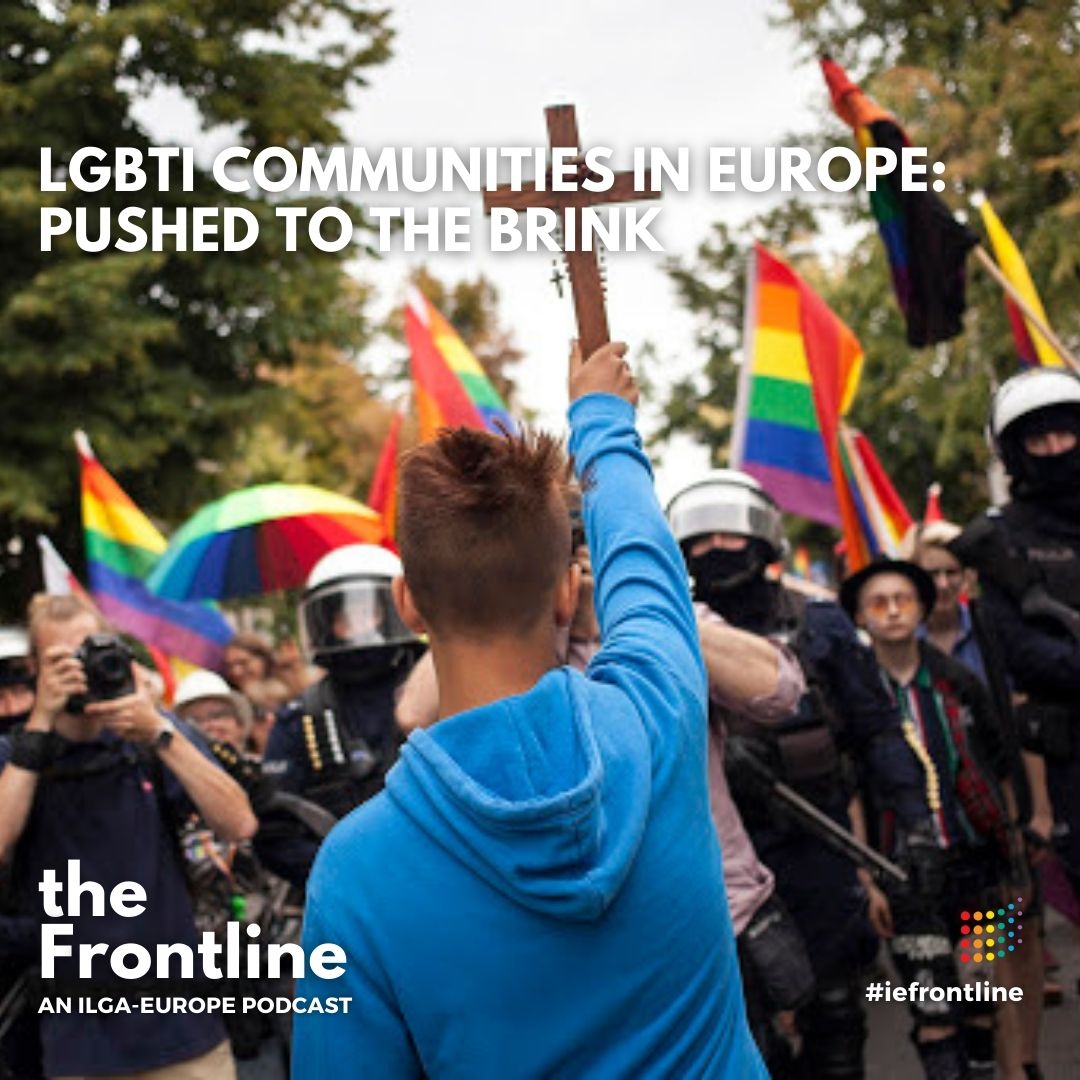
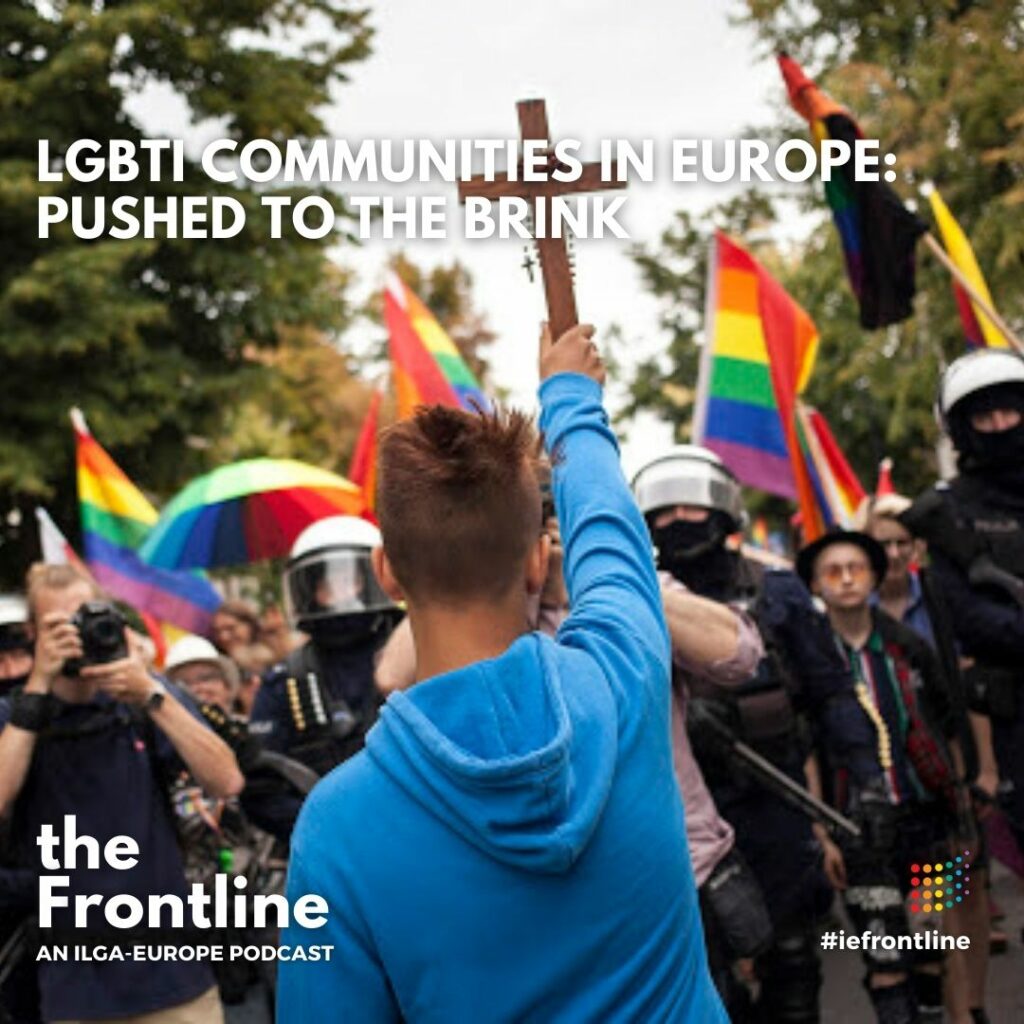
Reporting from country after country provides a glaring clarification that progress which has been taken for granted is not only increasingly fragile, but particularly vulnerable to exploitation by anti-human rights forces.
In this episode of The Frontline, we get an overview of the stark situation from ILGA-Europe’s Advocacy Director, Katrin Hugendubel. Executive Director of Transgender Europe (TGEU) talks to us about the significant growth of opposition towards trans rights across Europe; and Executive Director of ILGA-Portugal, and Marta Ramos tells us about the rise of the anti-gender movement in her country, and the ways in which LGBTI organisations have had to skew their work during the COVID-19 pandemic towards provision of basic necessities like food and shelter as many governments left LGBTI people out of their relief packages.
Listen below or click here to listen and subscribe to The Frontline on your favourite podcast platform.
Turkish government steps up its attacks on LGBTI+ citizens
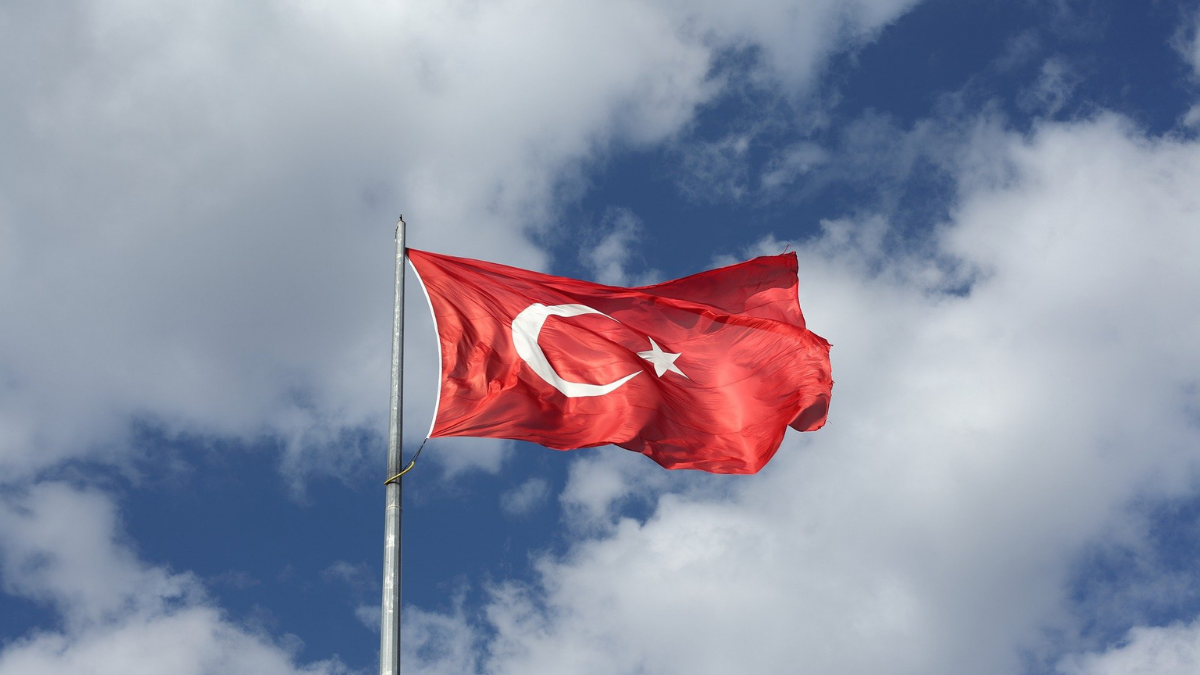
Europe’s leading LGBTI+ rights organisation, ILGA-Europe are alarmed to observe that in the past week the Turkish government has stepped up its systematic attacks on and defamation of LGBTI+ people and calls on President Erdo?an to guarantee the fundamental rights of all minorities without discrimination, as enshrined in the country’s Constitution.
Over the past week in Turkey, both government and government-supported media have called LGBTI+ people a “disgrace”, “dirty” and “perverts”, which has prompted a wave of hate-speech on social media.
President Recep Tayyip Erdo?an held video conferences on Monday 1 February and Wednesday 3 February denouncing LGBT people and praising his supporters saying: “We will carry our young people to the future, not as the LGBT youth, but as the youth that existed in our nation’s glorious past.”
On February 2, Justice Minister and the Interior Minister Süleyman Soylu called LGBT people “perverts” on Twitter. The social media platform has since flagged the tweet as violating its rules against “hateful conduct”.
This new campaign takes place in the context of rising hateful rhetoric against the LGBTI+ community by representatives of high-level religious and political institutions in Turkey, as well as actions and legislation attacking human rights defenders and civil society organisations.
Crackdown on freedom
The step-up in governmental anti-LGBTI+ rhetoric comes as academic staff and students at Bo?aziçi University of Istanbul have been protesting the appointment of the University’s new Rector, Melih Bulu, by President Erdo?an on 1 January 2021. Melih Bulu’s appointment is being protested because Bulu is the first appointed rector from outside the University, a move that further extends the government’s crackdown on academic freedom in Turkey.
The new Rector is a long-standing ally of President Erdo?an and his ruling party, and has held different positions in the party for years. He has supported anti-LGBTI+ statements from the Erdo?an government. Professors at Bo?aziçi University and students alike are concerned about the future of academic freedom, freedom of expression, freedom of assembly and freedom of association at the University.
Using COVID-19 to slander LGBTI people
In addition to the systematic attacks and bans that Turkey’s LGBTI+ movement has experienced at the hands of Turkish authorities since 2015, in 2020 the government seized upon the COVID-19 crisis as an opportunity to slander LGBTI+ people. In April last year, the President of the Directorate of Religious Affairs, Ali Erba? targeted LGBTI+ people and people living with HIV, equating homosexuality with a disease, stating that “hundreds of thousands of people a year are exposed to the HIV virus caused by this great haram, which passes as adultery in the Islamic Literature,” and blaming lesbian and gay people for COVID-19. He was quickly supported by leading governmental figures including the Minister of Family, Labour and Social Services, and President Erdo?an himself.
According to Evelyne Paradis, Executive Director of ILGA-Europe: “The Turkish government has an obligation to protect everyone from hate crime and discrimination, and should not be part of any statements that could encourage hate crimes and target any minority group, including LGBTI+ people.
“We recall that as a founding member of the United Nations, Turkey pledged to protect inherent dignity and the equal and inalienable rights of all members of the human family. In addition, as a Member State of the Council of Europe and having ratified the European Convention of Human Rights, Turkey must uphold European human rights law, which prohibits a discriminatory application of human rights.
“We call on Turkey to respect, guarantee, protect and fulfil the fundamental rights of the LGBTI+ community without discrimination as enshrined in its Constitution and equality article therein, and ratified by human rights treaty bodies,” Paradis concluded.
Further information:
- Find out more about LGBTI rights in Turkey in our Rainbow Map.
For comment, contact Ana Muñoz, ILGA-Europe: ana@ilga-europe.org / +32 493 35 60 55
The Frontline: Countering the Rise of State LGBT-phobia in Poland
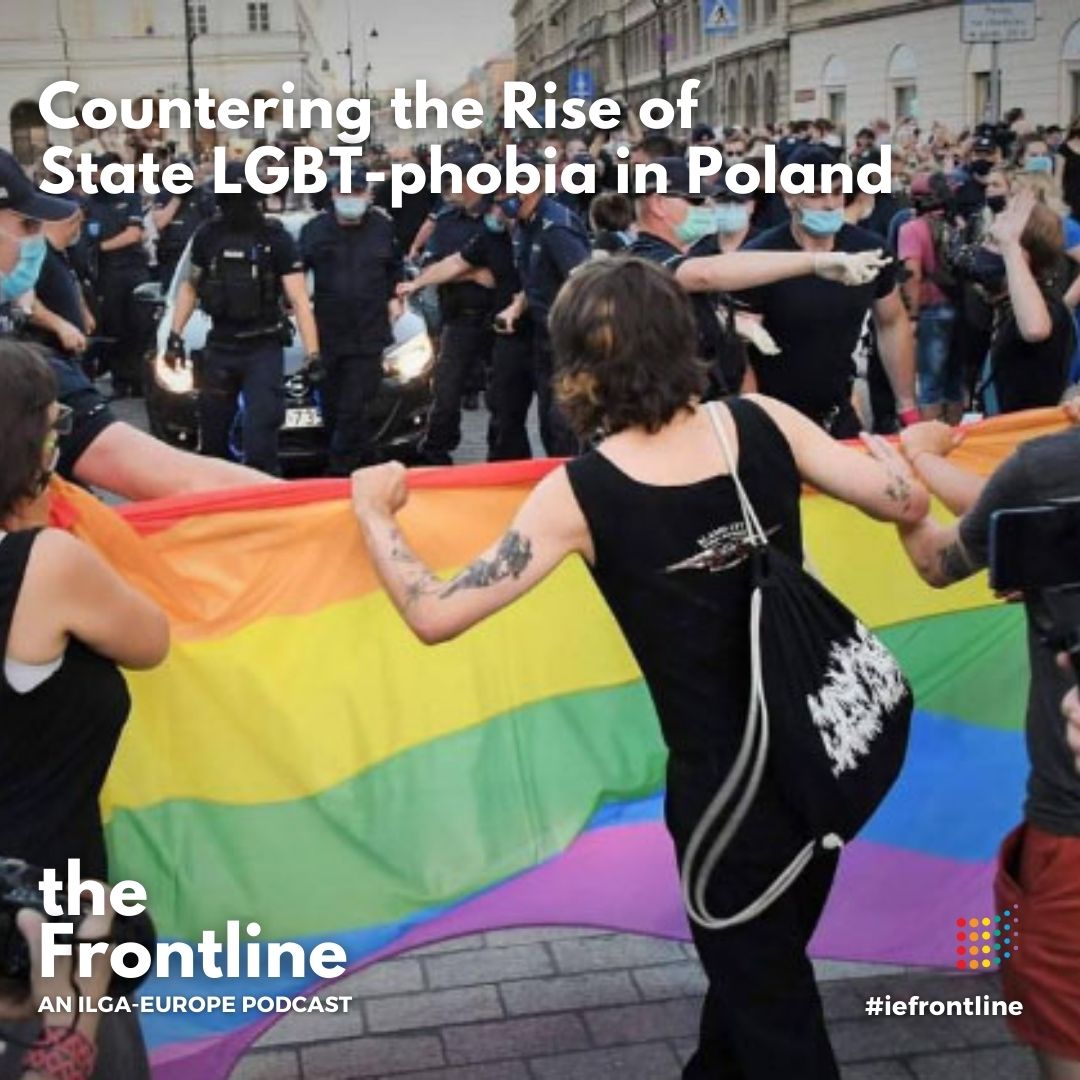
We talk to Polish activist Slava Melnyk from KPH (Campaign Against Homophobia) about how the situation has come to a head in the aftermath of the re-election of far-right President, Andrzej Duda.
David Socha, a young gay man living in the city of Pulawy, which has been designated one of Poland’s LGBT-free Zones, tells us about how this has affected his day-to-day life, and the ILGA-Europe advocacy team discuss the role of the EU institutions and external actors, and ways forward for the LGBTI movement in Poland.
Listen below or click here to listen and subscribe to The Frontline on your favourite podcast platform.
The Frontline: Bulgaria and the Spread of European Anti-LGBTI Populism
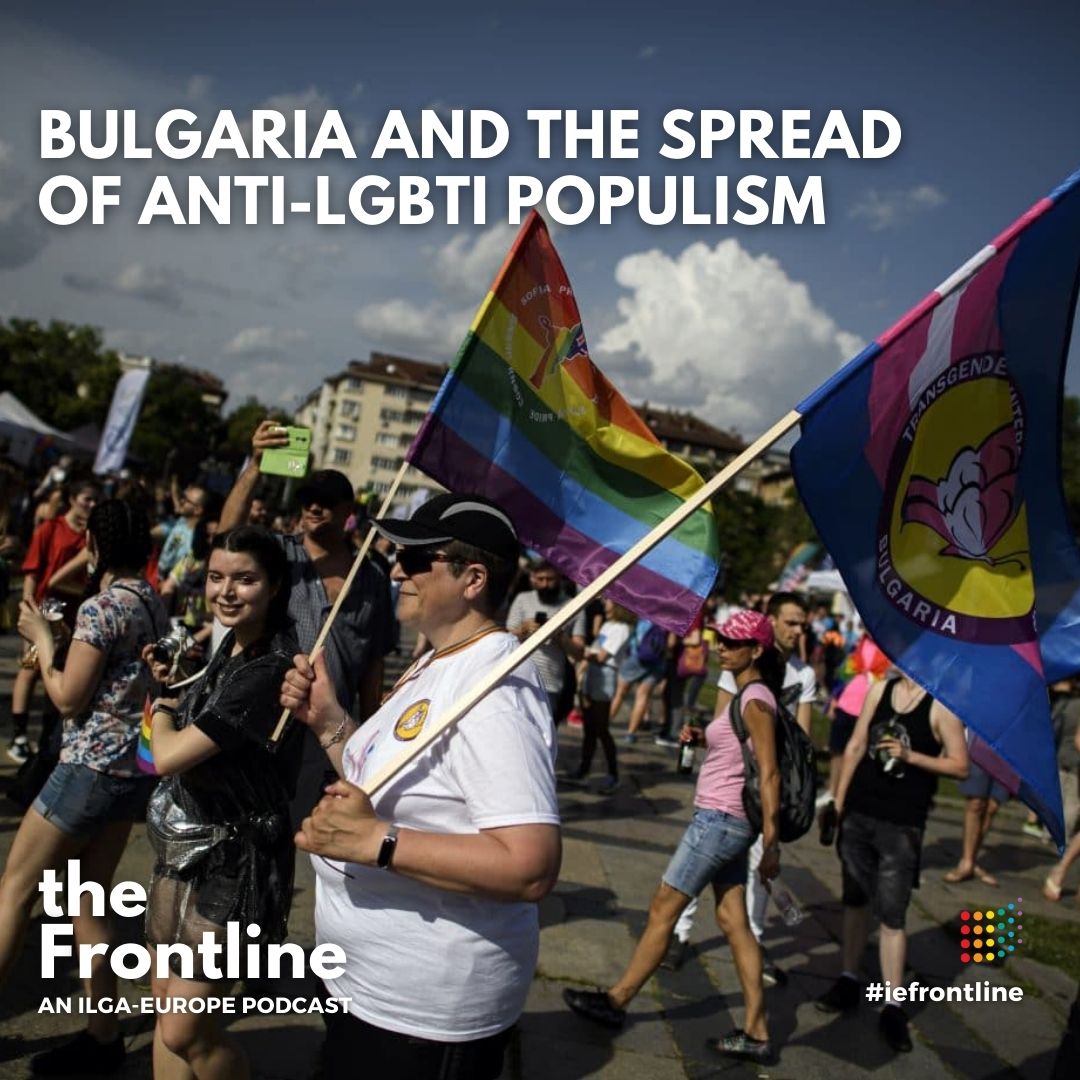
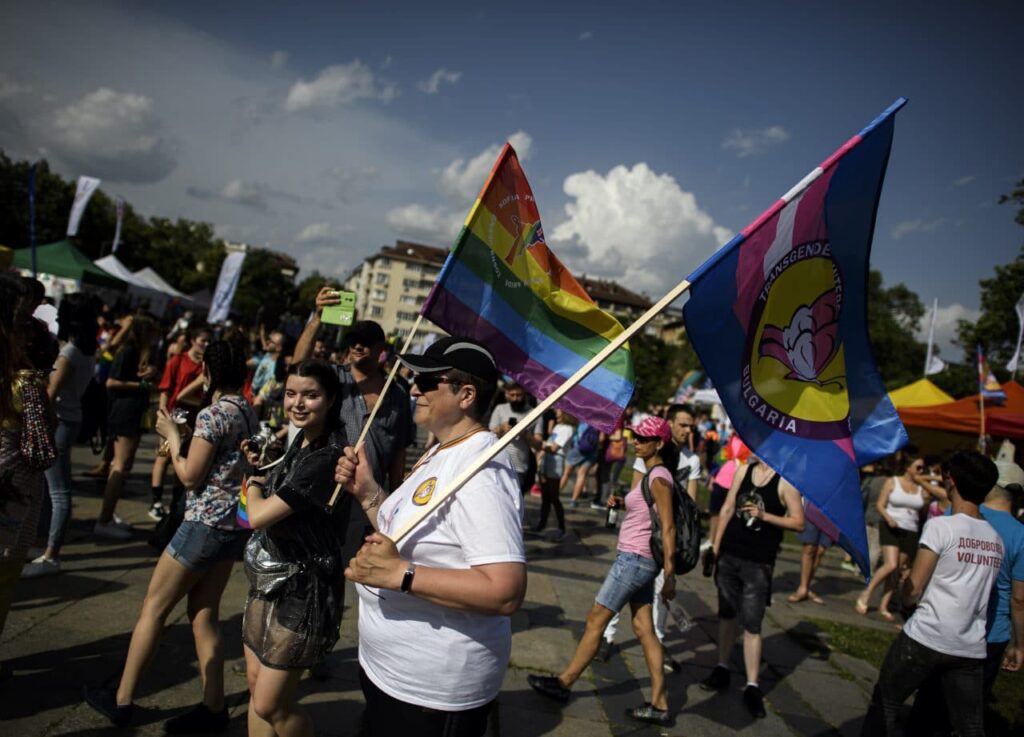
“Attitudes towards LGBTI people are changing and changing fast,” says activist, Lilly Dragoeva from the Sofia-based Billitis Foundation, in this episode of The Frontline, which delves into the current situation in Bulgaria, a country we don’t often hear about as Poland and Hungary’s governmental persecution of LGBTI people grabs the headlines. There may not be LGBT-free zones in Bulgaria, but it’s a country with almost no protections for LGBTI people, a growing, so-called ‘anti-gender’ movement, a successful spreading of demonising fake news stories, and an alarming advance in societal rejection of LGBTI people.
Along with Lilly, we speak with activist Simeon Vasilev from GLAS Foundation about a growth in official anti-LGBTI hate speech and the role the EU can play, and with Dimithar Dimitrov from the Bulgarian city of Plovidiv, where in September there were organised attacks on young people who are perceived as LGBTI.
Some hope for Bulgarian LGBTI people comes in the form of strategic litigation for the recognition of a rainbow family, and we speak to attorney Denitsa Lyubenova, from the LGBTI youth organisation, Deystvie, about the current state of play with the case.
Rounding the episode up, ILGA-Europe’s Programmes Director, Bjorn Van Roozendaal talks to us about the wider picture in Europe, the reasons behind the growth we’re seeing in anti-LGBTI politics and movements, and the way the LGBTI movement can strategise to counteract this.
Listen below or click here to listen and subscribe to The Frontline on your favourite podcast platform.